This free, online-in conversation event with multimedia artists Subash Thebe Limbu and Osheen Siva is part of our Formations series, hosted in partnership with Nottingham Trent University’s Postcolonial Studies Centre. This segment of Formations, CADALFEST, relates to the Celebrating Adivasi and Dalit Arts and Literature Festival (CADALFEST) taking place across India and in Nottingham. CADALFEST is the first international festival series dedicated to artists whose work creatively resists caste discrimination and social exclusion in India.
This event will be streamed live on Bonington Gallery’s YouTube channel. Book your free place now.
In recent times, the rapidly changing socio-political, environmental, and technological changes have centralised focus on reimagining and reconfiguring futures. While the Futurism movement, which began in Italy and spread to other European countries, sought to cleave off from the past and prophesized exciting futures through new technologies, futurisms that emerged from the margins were motivated by different urges – to question Eurocentric ideas of progress, development, scientific rationality, and techno futures. Afrofuturism, Latinx Futurism, and different kinds of Subaltern Futurisms have imagined alternate futures through speculative art and fiction by firmly holding on to the past.
In the Indian subcontinent, artists Subash Thebe Limbu and Osheen Siva have conceptualised Adivasi Futurism and Tamil Dalit Futures respectively. This conversation will discuss how they utilise the anti-caste philosophy that guides their multimodal artwork. It will explore how the artists use speculative art to posit alternate futures that resist caste and privilege their identities. The conversation, moderated by Prof. K.A. Geetha and Priteegandha Naik will discuss Dalit and Adivasi futurism and the potential it offers to dream up new and equal futures.
Subash Thebe Limbu is a Yakthung (Limbu) artist from what we currently know as eastern Nepal. He works with sound, film, music, performance, painting and podcast.
Subash has an MA in Fine Art from Central Saint Martins (2016), a BA in Fine Art from Middlesex University (2011), and an Intermediate in Fine Art from Lalit Kala Campus, Kathmandu.
His works are inspired by socio-political issues, resistance and science/speculative fiction. Indigeneity, climate change, and Adivasi Futurism are recurring themes in his works.
He is based in Newa Nation (Kathmandu) and London.
Osheen Siva is a multidisciplinary artist from Thiruvannamalai, currently based in Goa. Through the lens of surrealism, speculative fiction and science fiction and rooted in their Dalit and Tamil heritage, Siva imagines new worlds of decolonized dreamscapes, futuristic oasis with mutants and monsters and narratives of queer and feminine power.
K.A. Geetha is an Associate Professor the Department of Humanities and Social Sciences, BITS Pilani, Goa Campus, India. Her research interests are Dalit writing, Post-Colonial literatures, Women Studies and Cultural studies. She has worked extensively on the literary production and reception of Tamil Dalit literature.
Priteegandha Naik has submitted her thesis on Dalit-futurism which discussed Dalit Studies, Science Fiction Studies, Science and Technology Studies. She and is currently working as a Research Associate at Tata Institute of Social Sciences, Mumbai.



Join Bonington Gallery’s Director, Tom Godfrey, for this hour-long gallery tour of our current exhibition – Social Resource Project for Tennis Clubs.
Free and open to all, gain a unique insight into this exhibition and Stephen Willats’ work. Explore the origins of Social Resource Project for Tennis Clubs (1971/2) through the archival material on display, and how Willats’ early years in Nottingham proved influential to his subsequent career. This walkthrough will also look at the new works the artist has recently made in response to revisiting Nottingham and the original locations of Social Resource Project for Tennis Clubs (1971/2).
Spaces are limited, and booking is required. Meet in Bonington Foyer (outside the doors to the Gallery) at 12.55 pm for a prompt start.
Accompanying Stephen Willats’ exhibition Social Resource for Tennis Clubs in the Gallery, we are pleased to dedicate our Vitrines to Control Magazine – the pioneering journal that Stephen founded in 1965, and continues to publish and edit to this day.
Control Magazine’s focus has always been to provide a resource for artists to discuss their work and, in particular, to make connections with other disciplines including social or computer sciences and technology. Across 21 issues, the magazine has published work and writing by over 150 artists, including John Latham, Roy Ascot, Anthony Benjamin, Dan Graham, Mary Kelly, Helen Chadwick, Tony Cragg, Dennis Adams, Lawrence Weiner, Anish Kapoor, Martha Rosler and Jeremy Deller.
In this presentation we’re displaying issues 5, 6, 7, 8 and 9 which cover the period of time that Stephen lived and worked in Nottingham, producing such projects as Man from the Twenty First Century (1971) and Social Resource Project for Tennis Clubs (1971/2).
Alongside this Vitrines exhibition, we are also delighted to display two new acquisitions to Nottingham Trent University’s art collection. Firstly Art Cognition Manifesto (1969) that Stephen produced and printed here in the Bonington Building and was distributed to various art schools around the country. This continued a tradition of manifesto writing that Stephen had begun in the early 1960s that attempted to shape the thinking of the art community.
The second is The Telephone Conversation, 1974. Although produced 1 – 2 years after Stephen left Nottingham, this interactive work involves several people associated with NTU and was very much informed by the ideas Stephen had been exploring in the city. The work concerns the relativity of people’s perceptions of each other, and the interactive worksheet allows the viewer/participant to construct a model of the situation that reflects their own experience, beliefs and behaviours. Stephen recently stated that his work in the 1970s all came from this singular piece.
Image: Control Magazine Issues 13 and 17, Stephen Willats

















Patois Banton is a solo exhibition by London-based artist, writer and curator Cedar Lewisohn. His recent work has focused on intertwining narratives within art history and the contemporary psyche; often done from a black British perspective.
Over the recent 2–3 years we have witnessed various historic museum collections being questioned for ethical reasons related to the obtaining of their artefacts. The mixing together of histories, locations, myths and hidden stories told through these collections has long been central to Cedar’s work. He has recently worked with objects from UK collections such as the British Museum, the Pit Rivers Museum, and the Petrie museum. Objects and artefacts that Cedar engages with are translated and re-contextualised through large and small scale drawings – often processed through wood-carving prints – that become the starting point for a practice that embodies book-works, printed matter, performances, VR experience and the written word.
The title of the exhibition is a fusion of two words that offer further insight into Lewisohn’s practice and his preoccupations. Patois as in Jamaican Patois – the English-based creole language spoken primarily in Jamaica and among the Jamaican diaspora (Lewisohn took lessons in patois over the COVID-19 lockdowns from poet, writer and patois expert Joan Hutchinson), and banton, a Jamaican word meaning ‘storyteller’. Bringing these words together highlights Lewisohn’s interest in exploring Jamaican heritage from both an individual and collective perspective, and the complex and intertwined narratives that have formed as a result of historical events in this country and beyond.
The exhibition will present a range of new and recent works, several of which have not been exhibited before, including a newly commissioned book-work and a large-scale interactive virtual space.
































Join Bonington Gallery’s Assistant Curator Joshua Lockwood-Moran for a free gallery tour of our current exhibition on Wednesday 1 March at 1 pm.
Cedar Lewisohn’s publication Office Poems is a collection of poems written from 2019 that share reflections and frustrations on working within an office environment.
These poems have been translated into Patois by Joan Hutchinson, a writer, storyteller and teacher based in Jamaica. Throughout the publication there are numerous drawings by Cedar, resembling doodles that are done when in tedious meetings. Buy a copy online or ask our gallery invigilator on your visit.
Cedar Lewisohn has worked on numerous projects for institutions such as Tate Britain, Tate Modern and the British Council. In 2008, he curated the landmark Street Art exhibition at Tate Modern and recently curated the Museum of London’s Dub London project. In 2020 he was appointed curator of Site Design for The Southbank Centre. He is the author of three books (Street Art, Tate 2008, Abstract Graffiti, Merrell, 2011, The Marduk Prophecy, Slimvolume, 2020), and has edited a number of publications. His work has been exhibited nationally and internationally for over twenty years and belongs to various collections. In 2015 he was a resident artist at the Jan Van Eyke Academie in Maastricht. Lewisohn has been included in numerous group exhibitions and had solo projects at the bonnefantenmuseum in Maastricht (2015), Joey Ramone, Rotterdam (2016), in VOLUME Book Fair at ArtSpace Sydney (2015) and Exeter Phoenix, (2017). Most recently he participated in the group exhibition UNTITLED: Art on the conditions of our time at Kettles Yard, Cambridge where his work was named by The Guardian as “the highlight of the show”.
Header image: Cedar Lewisohn, Untitled, 2022, Lino print on paper.
Join us in the gallery from 6 – 8 pm for a first look around Stephen Willats’ solo exhibition Social Resource Project for Tennis Clubs.
Also taking place on Saturday 8 October is the Tennis Tournament – a live artwork by Stephen Willats, taking place at The Park Tennis Club in Nottingham.
Book your free tickets and join us to watch the Tennis Tournament – a live artwork by Stephen Willats, taking place as part of our forthcoming exhibition Social Resource Project for Tennis Clubs.
Background
In 1971 whilst living and working in Nottingham, Stephen initiated an art project with four tennis clubs in Nottingham entitled Social Resource Project for Tennis Clubs. Working with a group of volunteers, a number of ‘games’ were devised that reinterpreted the traditional rules and format of tennis. This culminated in an experimental ‘Tennis Tournament’.
Tennis Tournament – Saturday 8 October, 2 – 4 pm
50 years on from the original event, Stephen will once again work with a group of volunteers re-enact the original games of tennis devised in 1971 for a demonstration on Saturday 8th October 2 – 4 pm at The Park Tennis Club in Nottingham – one of the original clubs involved in the project. The public are invited to watch, with lunch and refreshments provided for everyone attending. Participants will represent a wide range of tennis abilities, even those who haven’t played before.
Everyone is invited to the gallery in the evening 6 – 8pm for the launch of Stephen’s solo exhibition Social Resource Project for Tennis Clubs, for a glass of wine.




















Opportunity
If you would like to participate in the actual event, please email Tom Godfrey (Director, Bonington Gallery) on tom.godfrey@ntu.ac.uk for further details, by Wednesday 21 September.
Venue
The Tennis Tournament will take place at The Park Tennis Club, Tattershall Drive, The Park, Nottingham, NG7 1BX.
Exhibition launch
Following the Tennis Tournament, we’ll be hosting a free exhibition launch of Social Resource Project for Tennis Clubs at the Gallery, from 6 – 8 pm. Book your free ticket now.
Weird Hope Engines embraces the culture of tabletop roleplaying games (TTRPGs) to explore play as a site of projection, simulation, communal myth-making, distorted temporality, and alternate possibility.
The first exhibition of its kind, it highlights the practices of innovative designers, artists, and writers in the field of independent game design, and brings their work into dialogue with fellow-travellers in the field of critical art practice.
Curated by David Blandy, Rebecca Edwards and Jamie Sutcliffe, this experimental exhibition reimagines Bonington Gallery as a hybrid lab – a testing site for the development of new worlding experiences, an active gaming hub, and an archive of maps, concept artworks, rulebooks, and gaming curiosities. Visitors are invited to participate in both solo and collaborative gaming experiences that highlight questions of collective responsibility, personal testimony, and colonial legacy, reframing our expectations of gaming imaginaries as potent sites for rethinking social organisation, cross-cultural understanding, and personal reverie.
…reframing our expectations of gaming imaginaries as potent sites for rethinking social organisation, cross-cultural understanding, and personal reverie.
Migrating between the dreamworlds of science fiction, fantasy, folkloric myth, and pressing social realities, a series of newly commissioned play experiences by David Blandy, Chris Bisette, Laurie O’Connel, Zedeck Siew, and Angela Washko utilise a range of mechanics, from dice rolls and diary keeping to tumble towers and the recording of personal anecdotes, to encourage new approaches to immersive play.
Original displays by Amanda Lee Franck, Tom K Kemp with Patrick Stuart, Scrap Princess, and Andrew Walter and Shuyi Zhang (Melsonia Arts Council) showcase the unique function of visual art within gaming imaginaries, in which image making moves beyond functional illustration into complex relationships with collaborative storytelling.
An original essay-film by the curators, produced in collaboration with Adam Sinclair and Lotti Closs, explores the shared experience of game space as a site of hallucinatory possibility.
Reactor Halls, an experimental programme of live performance, film and music events curated by Reactor, are a supporting partner of this exhibition.
Press
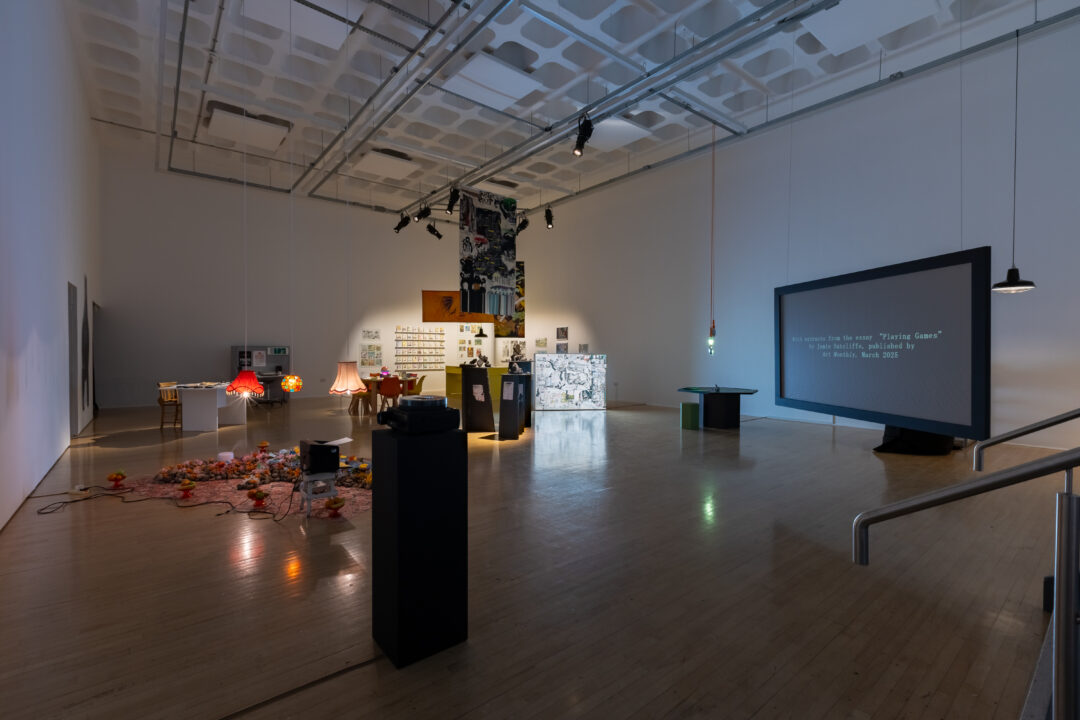
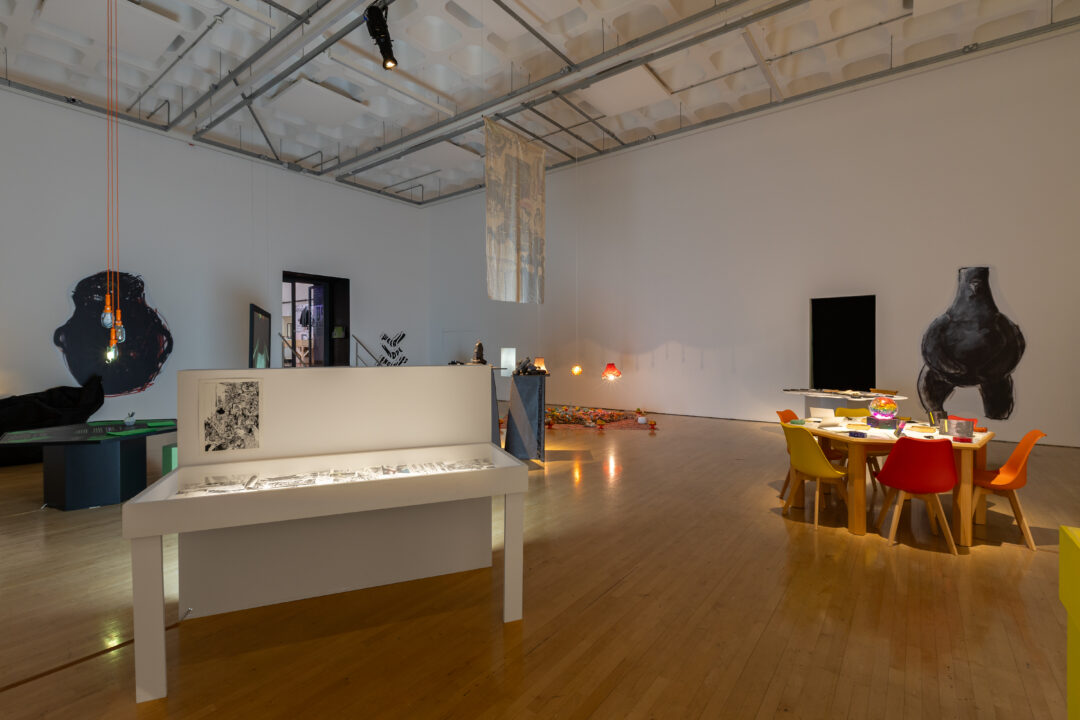
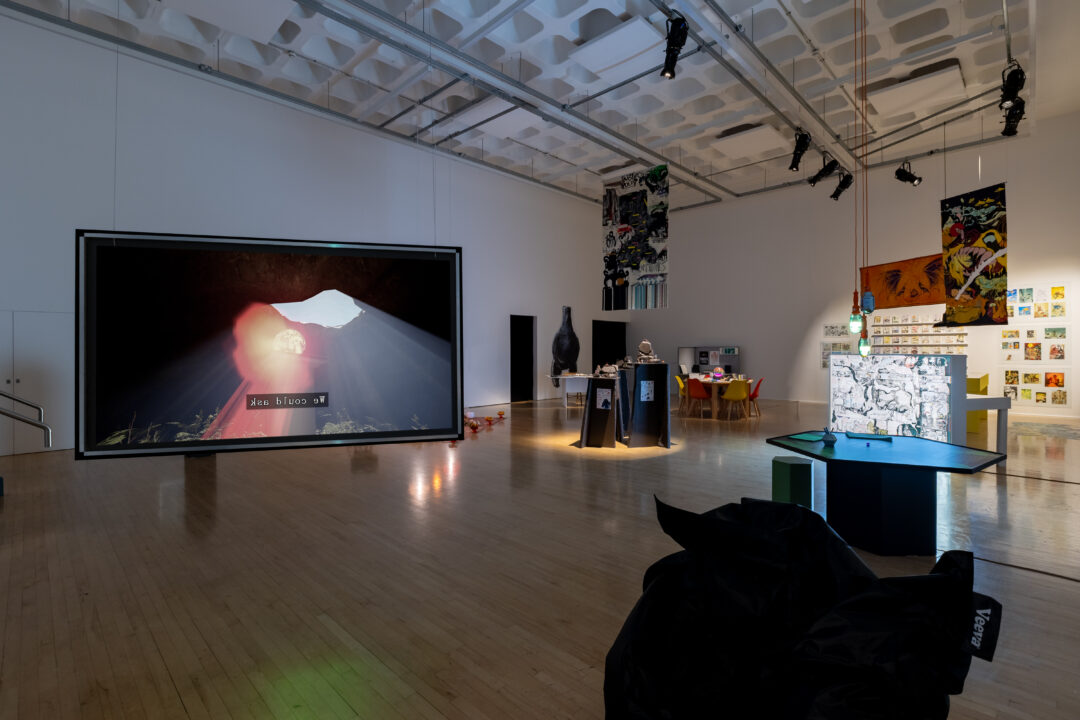
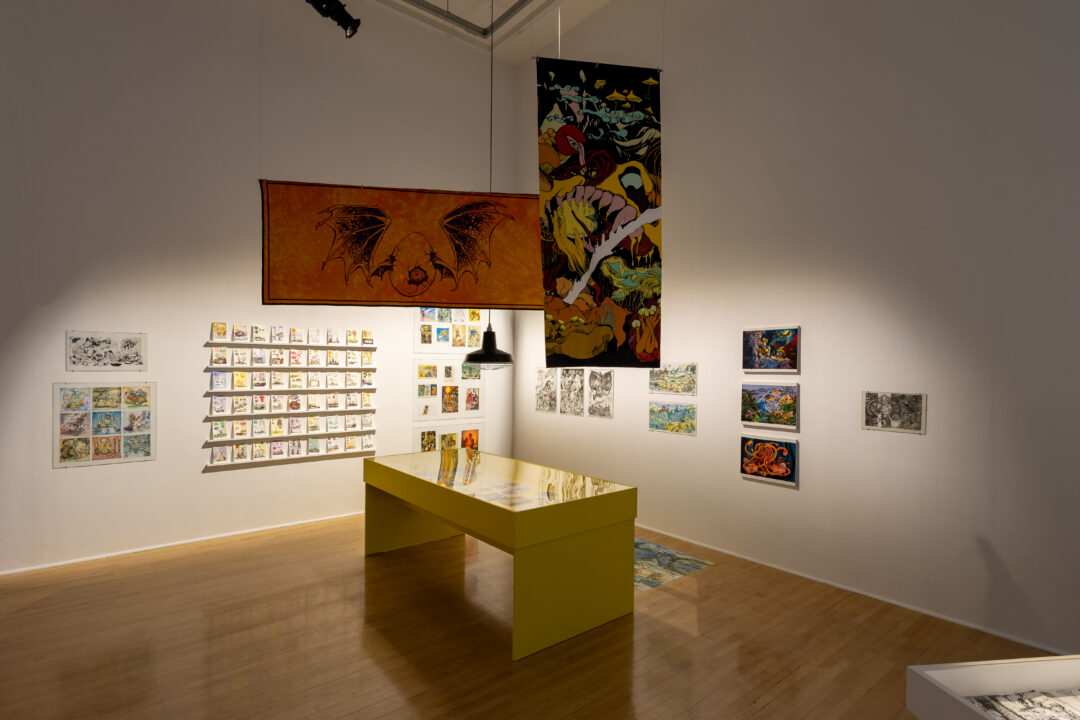
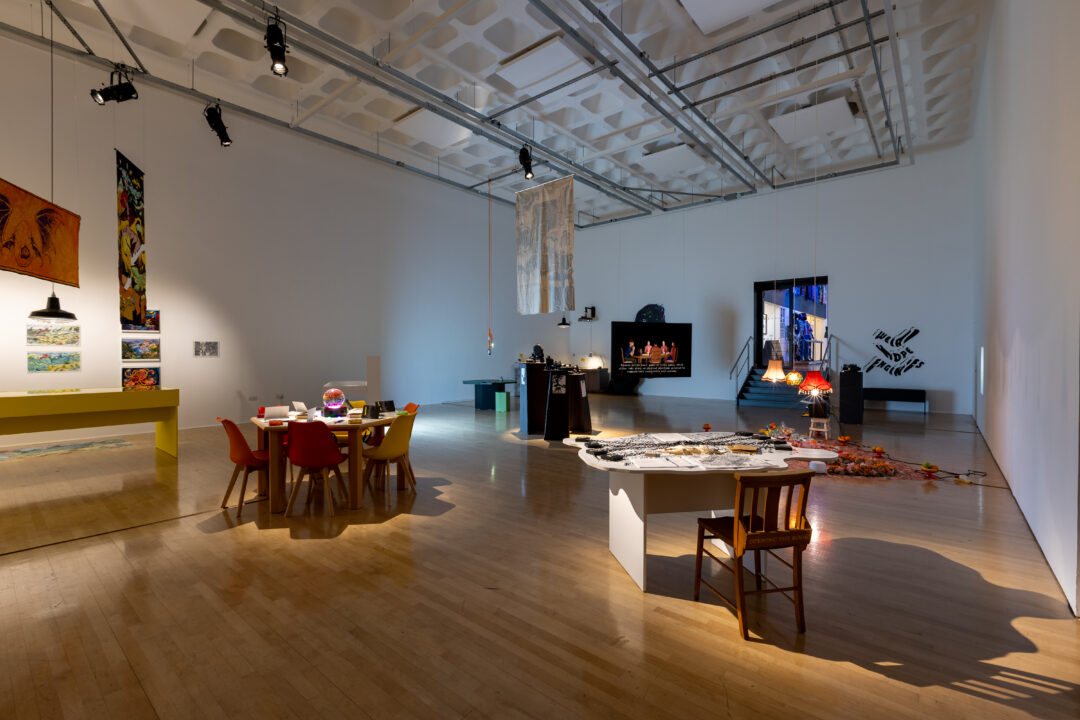
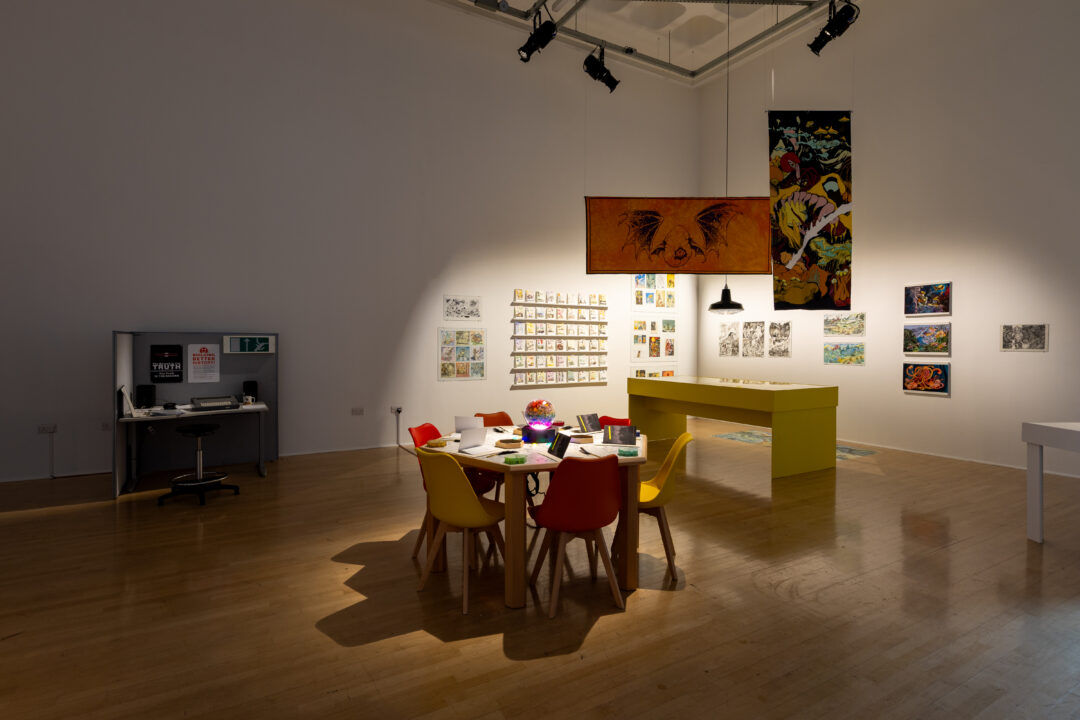
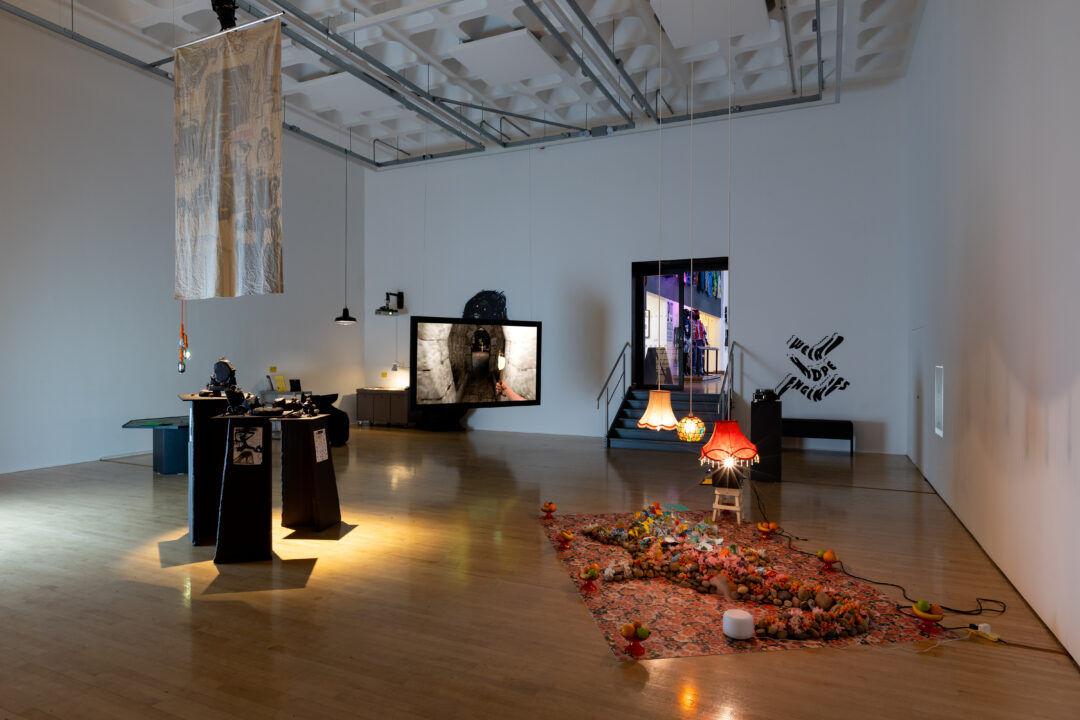
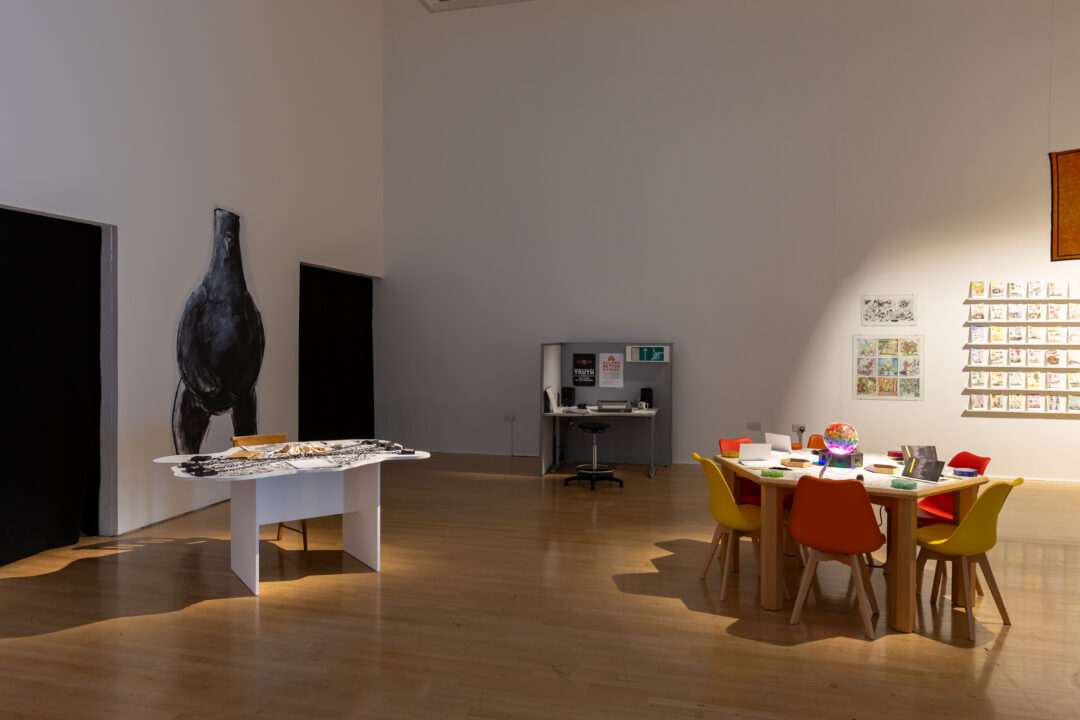
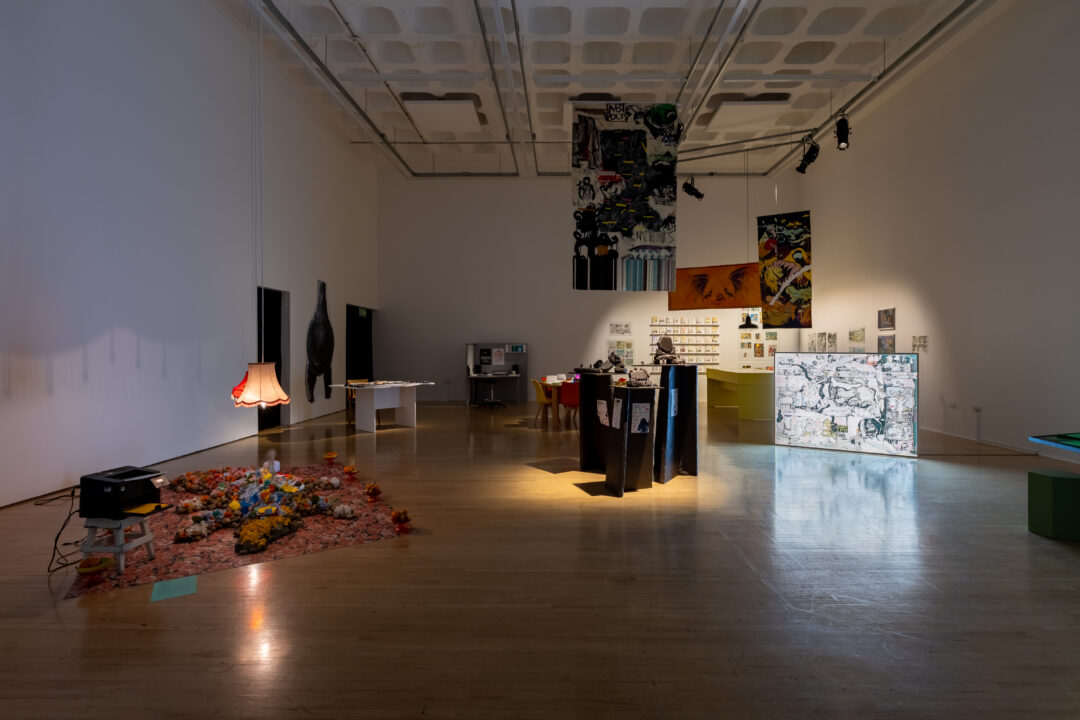
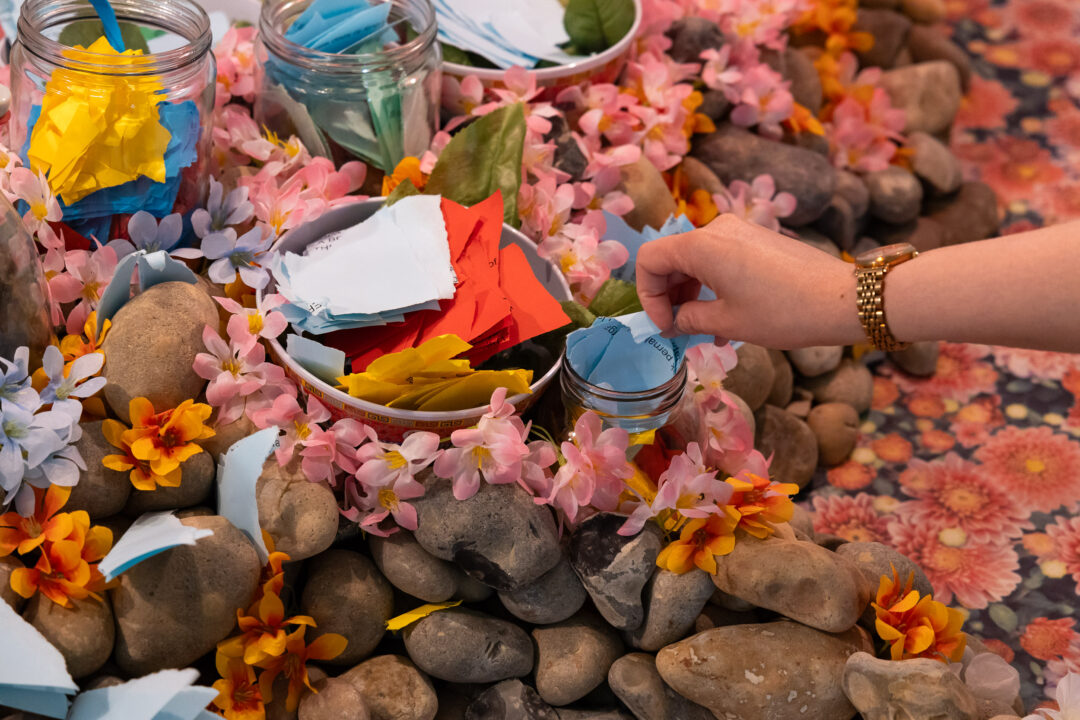
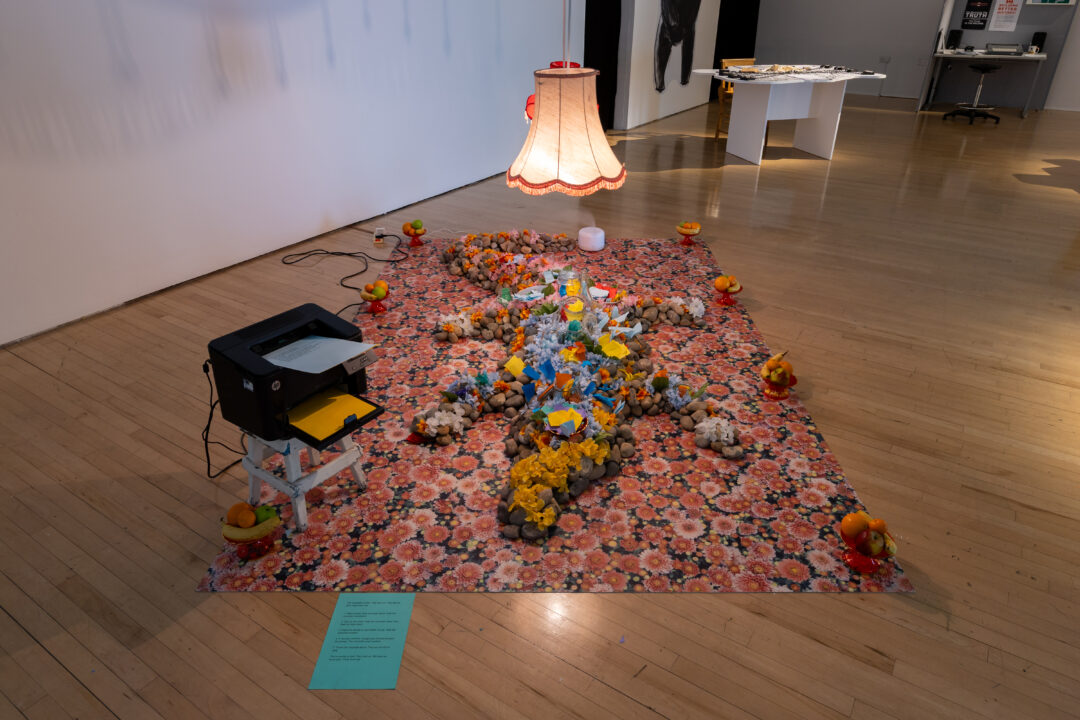
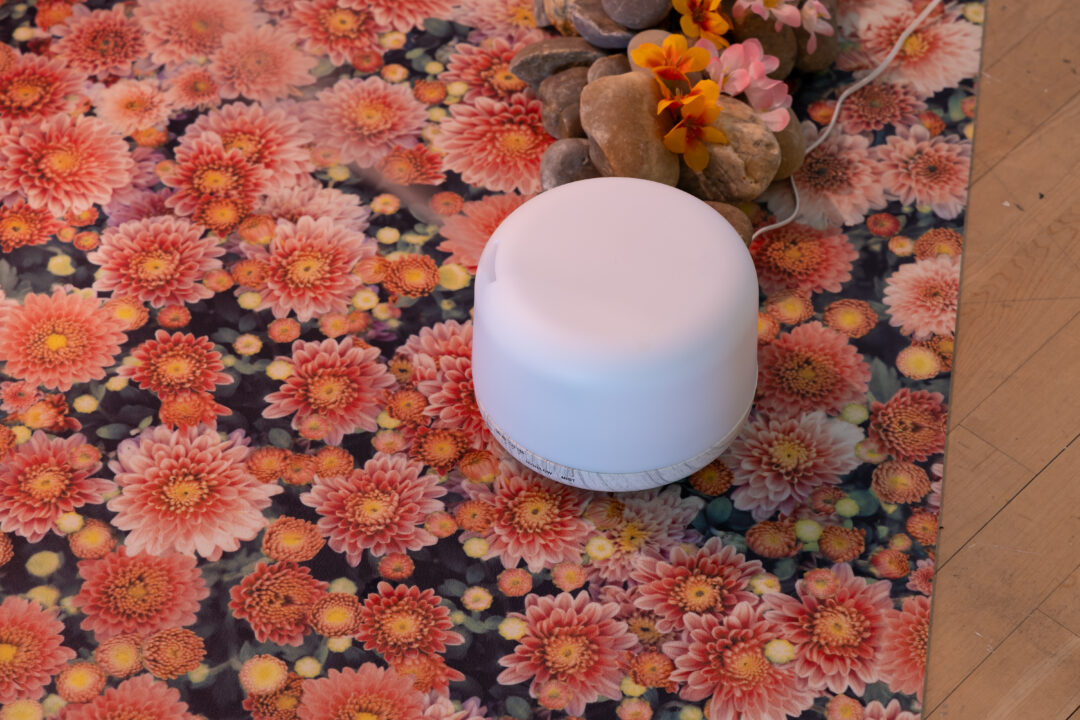
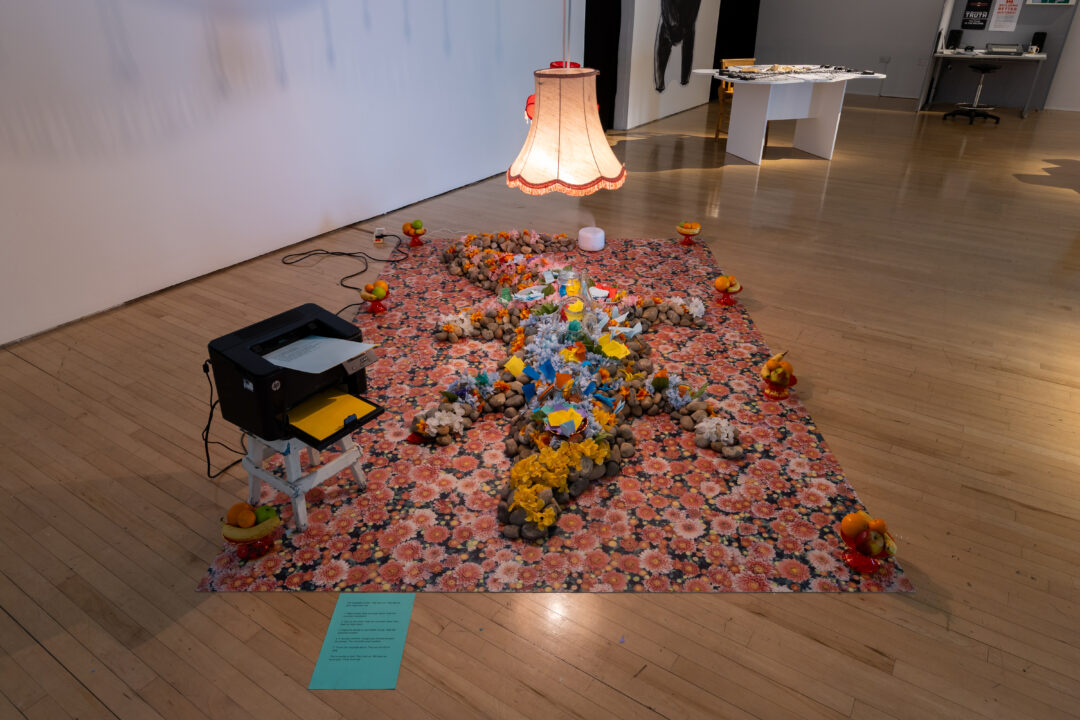
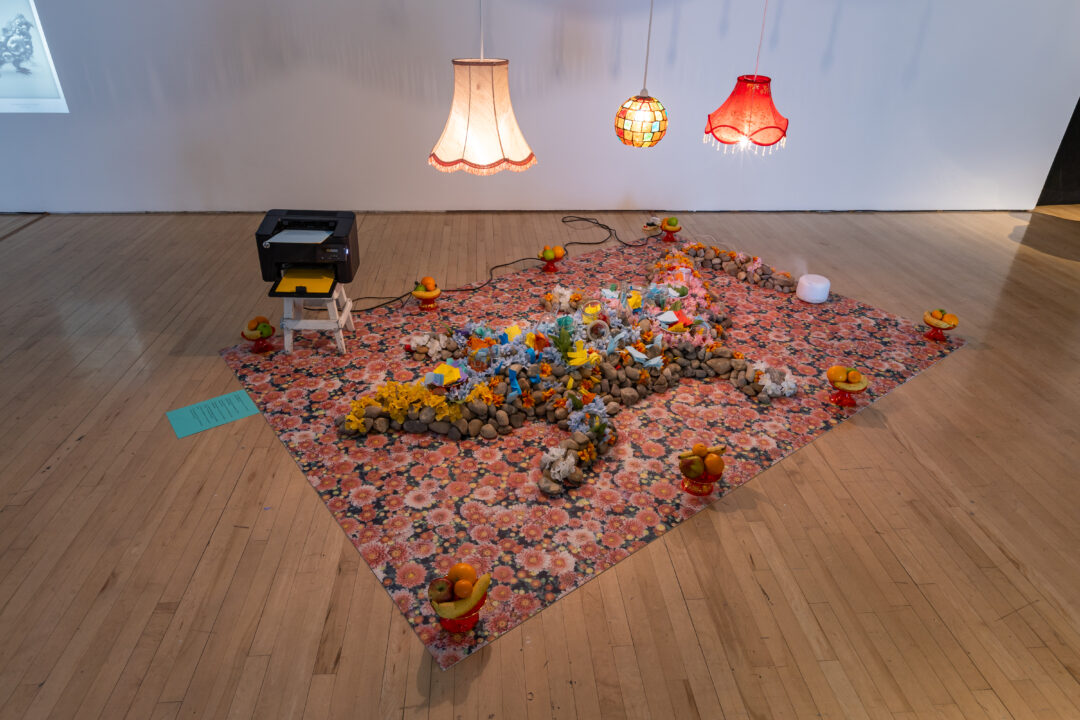
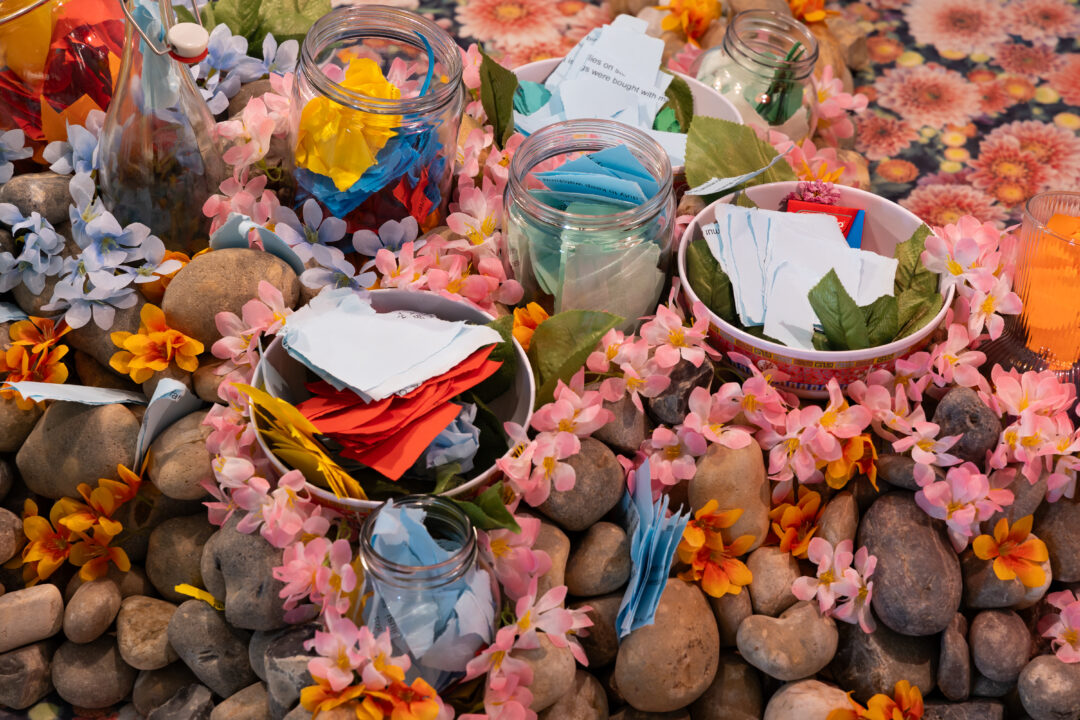
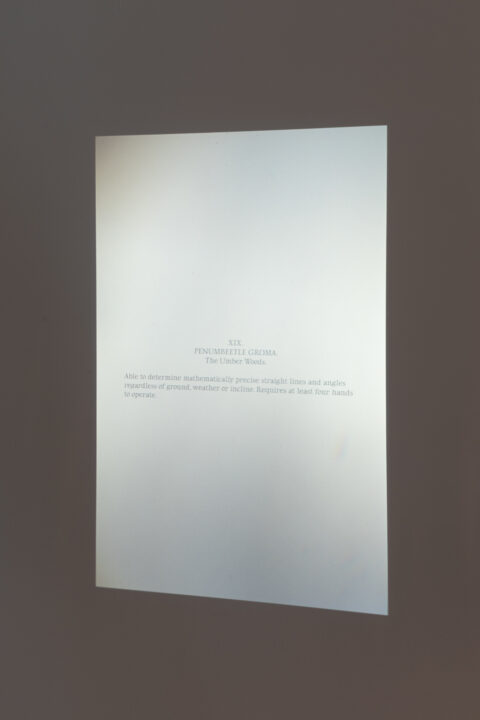
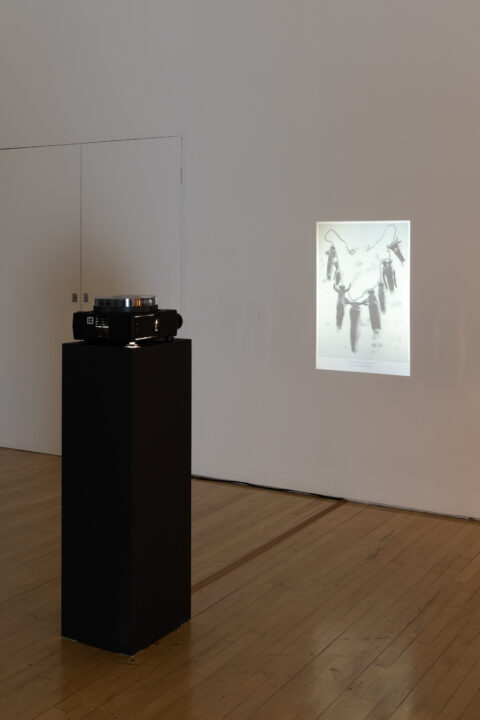
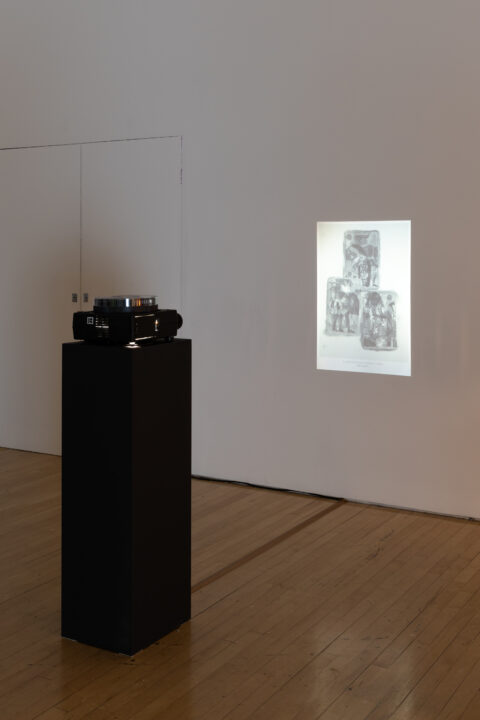
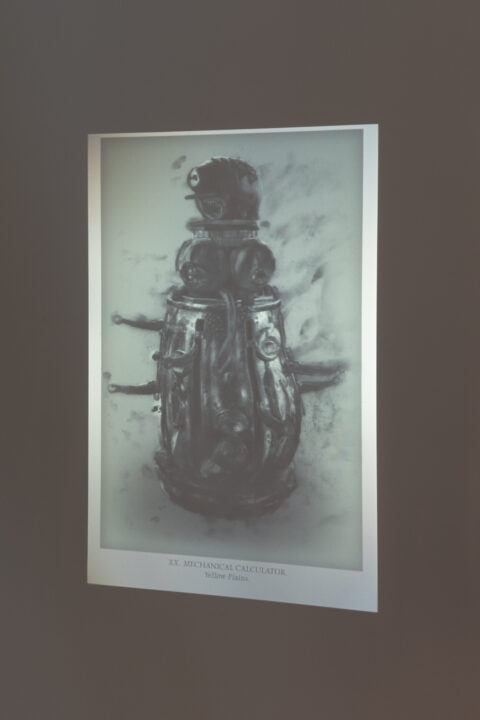
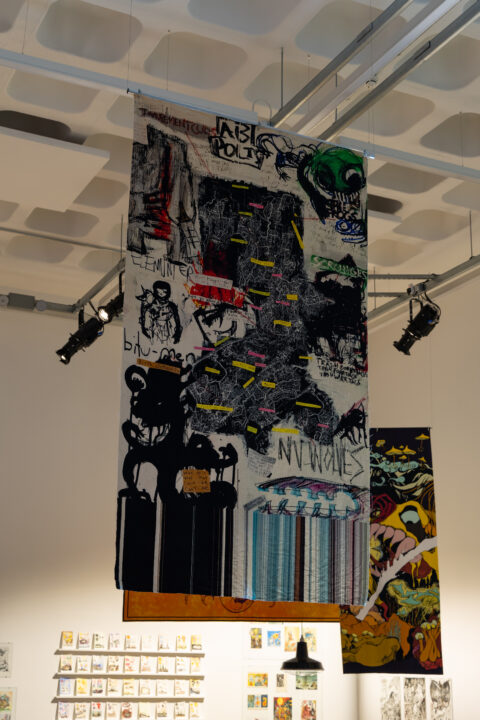
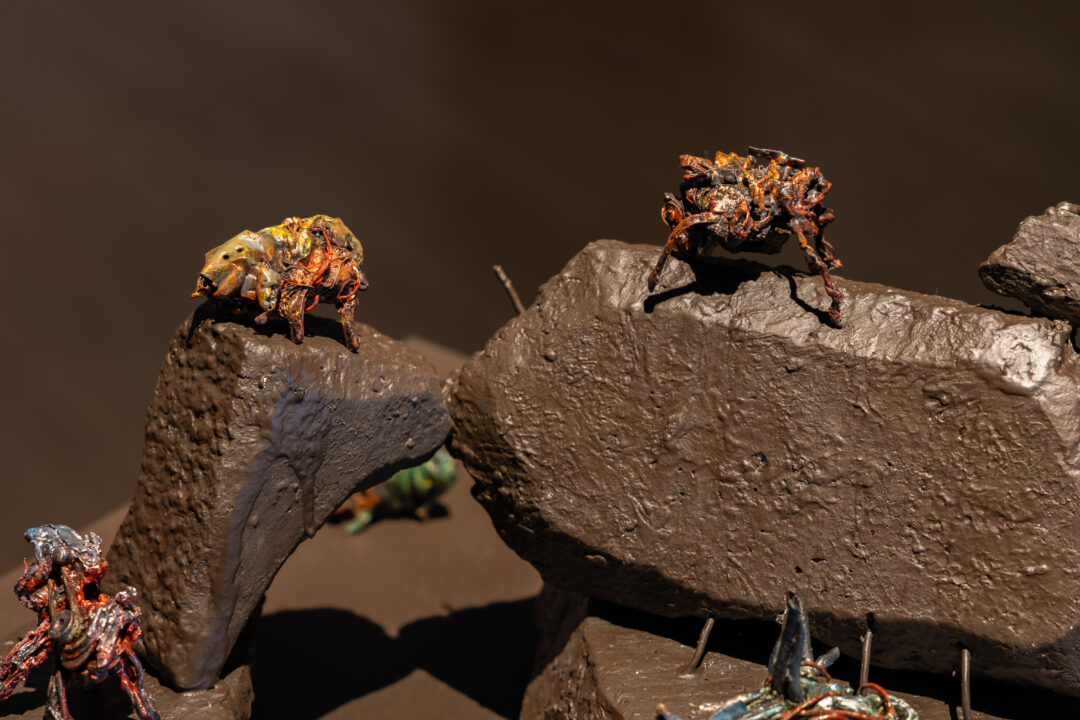
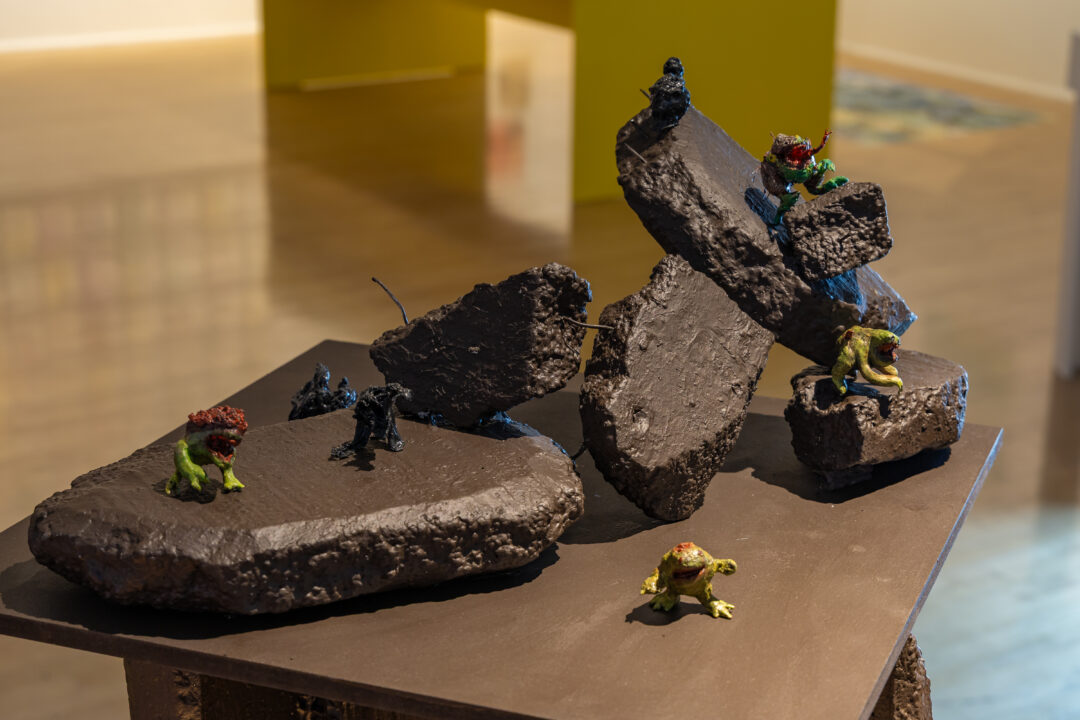
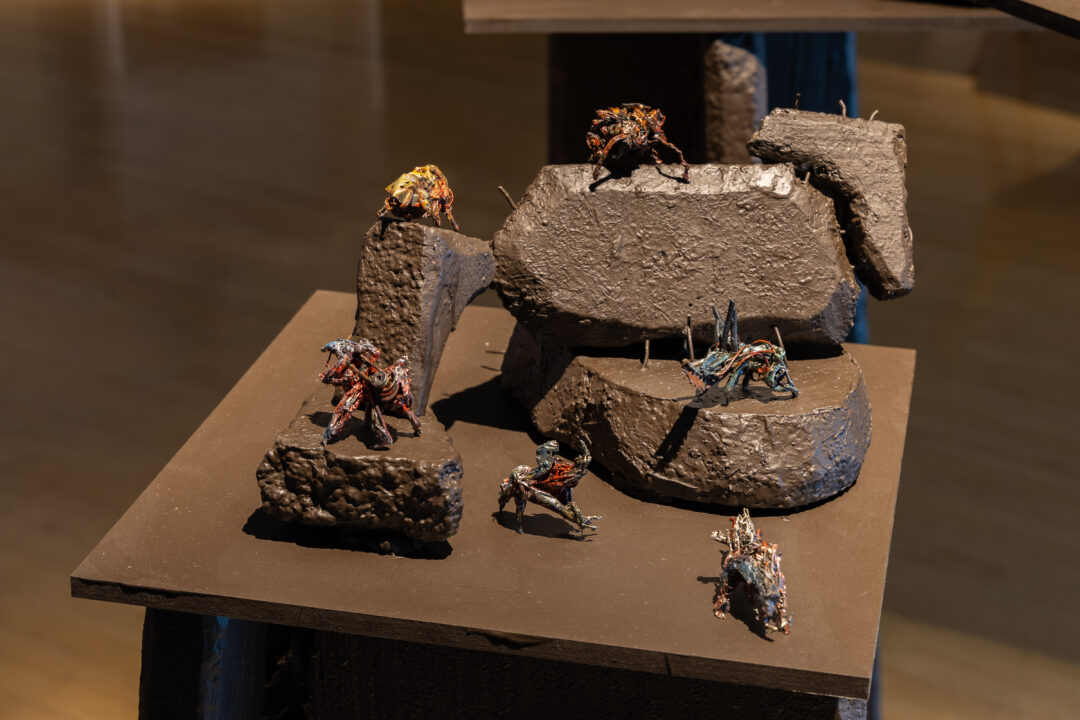
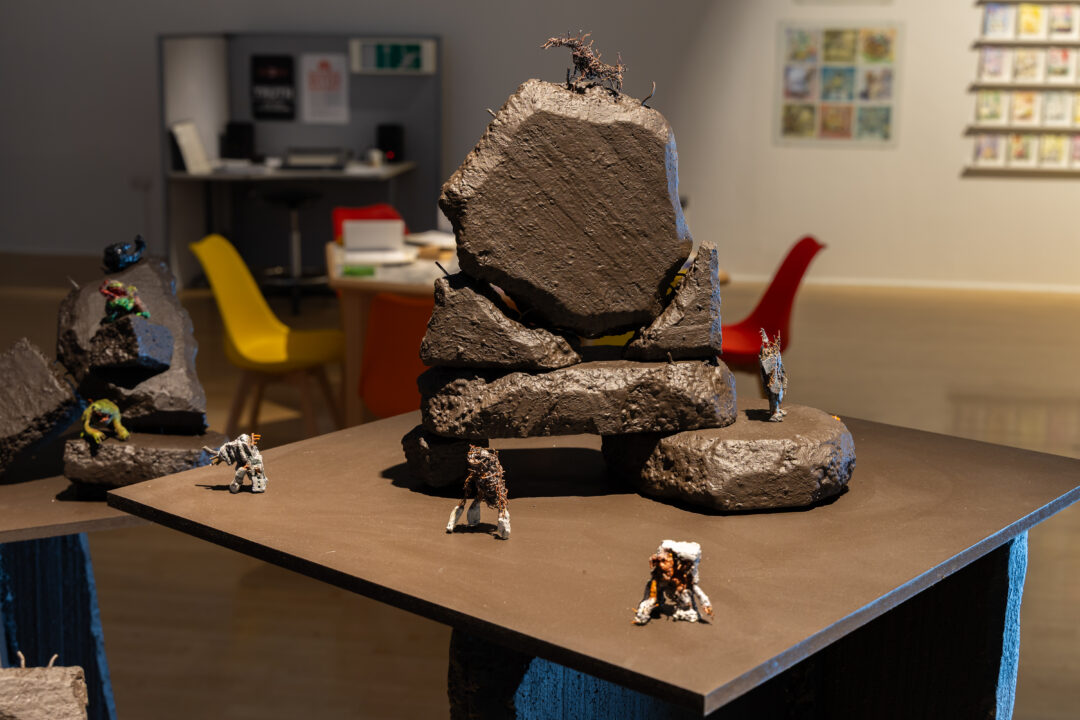
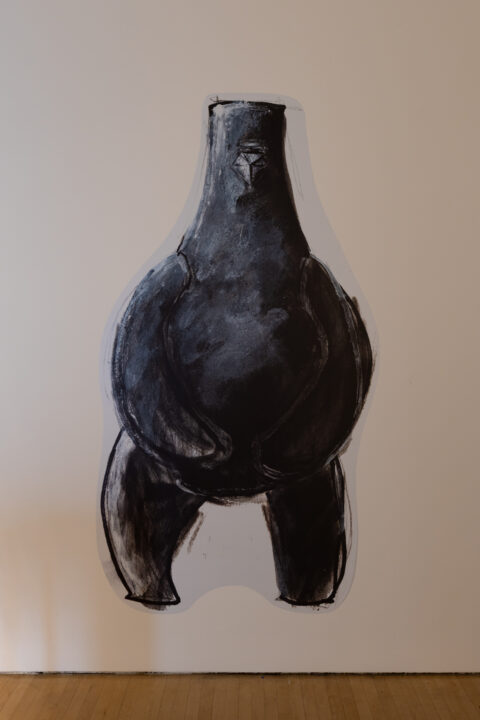
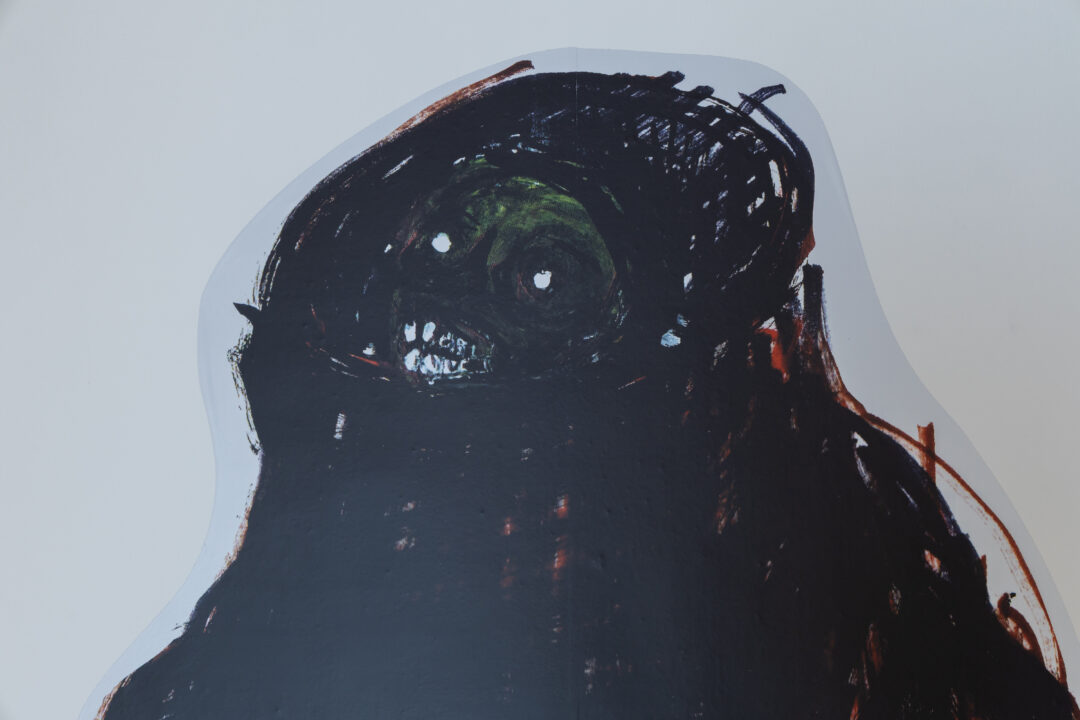
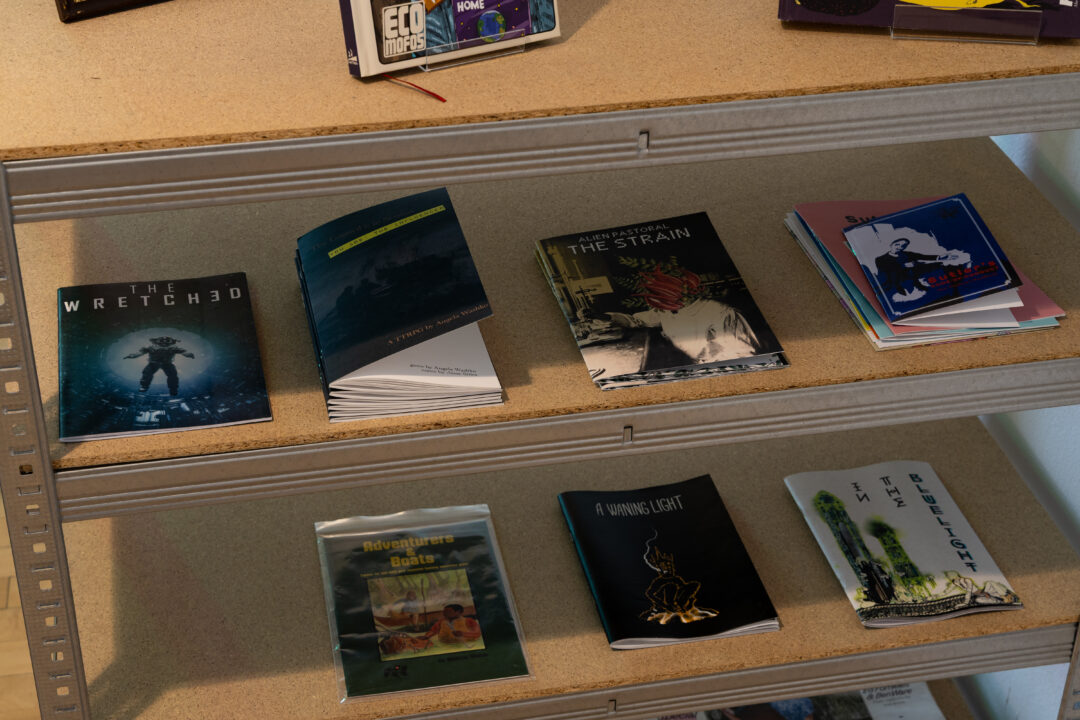
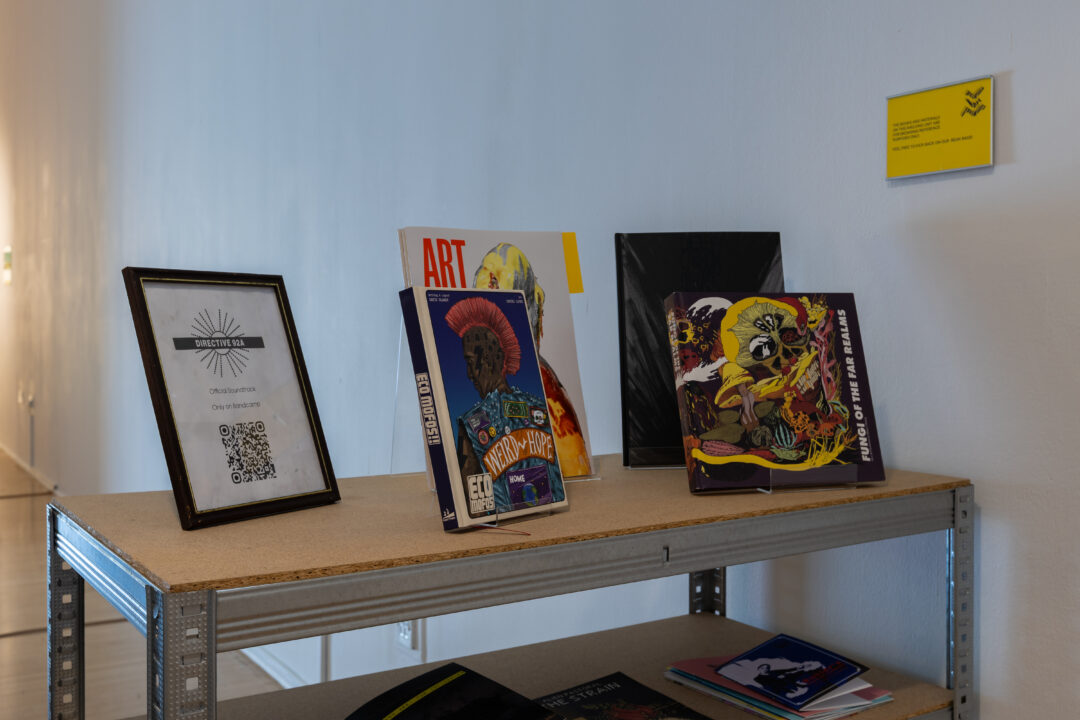
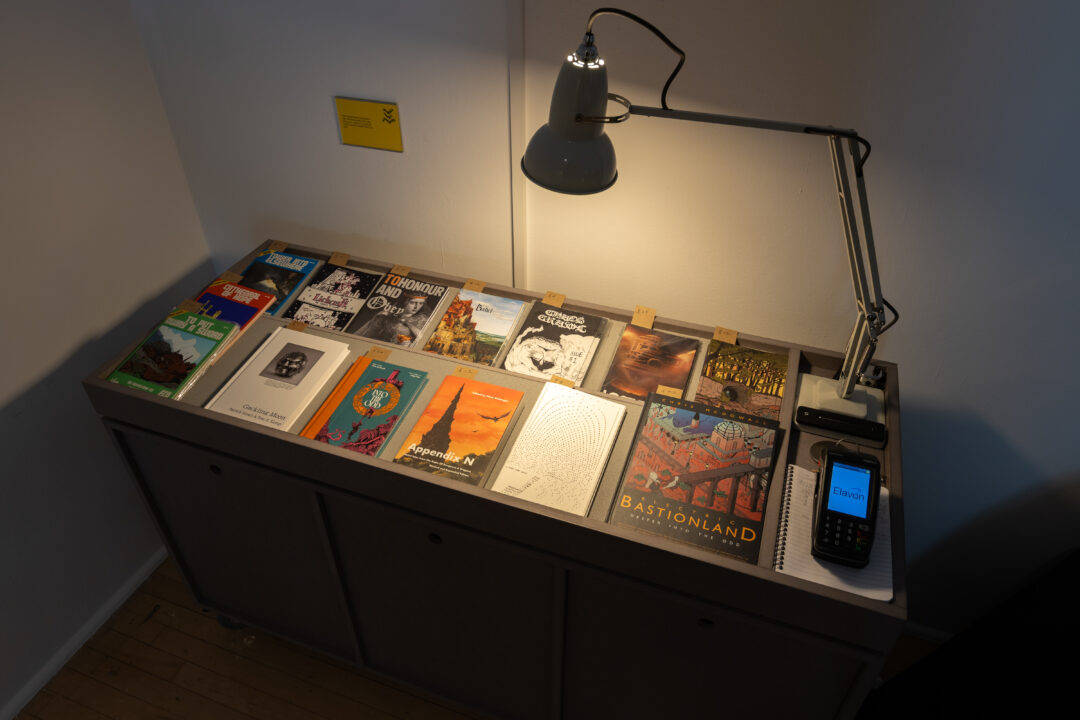
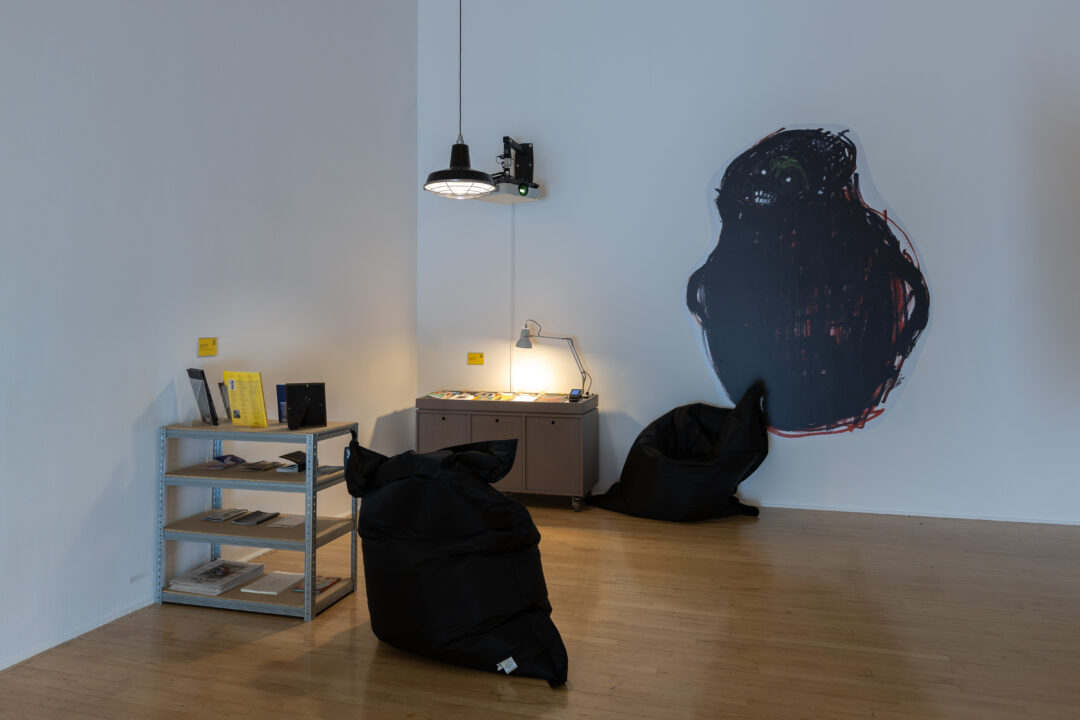
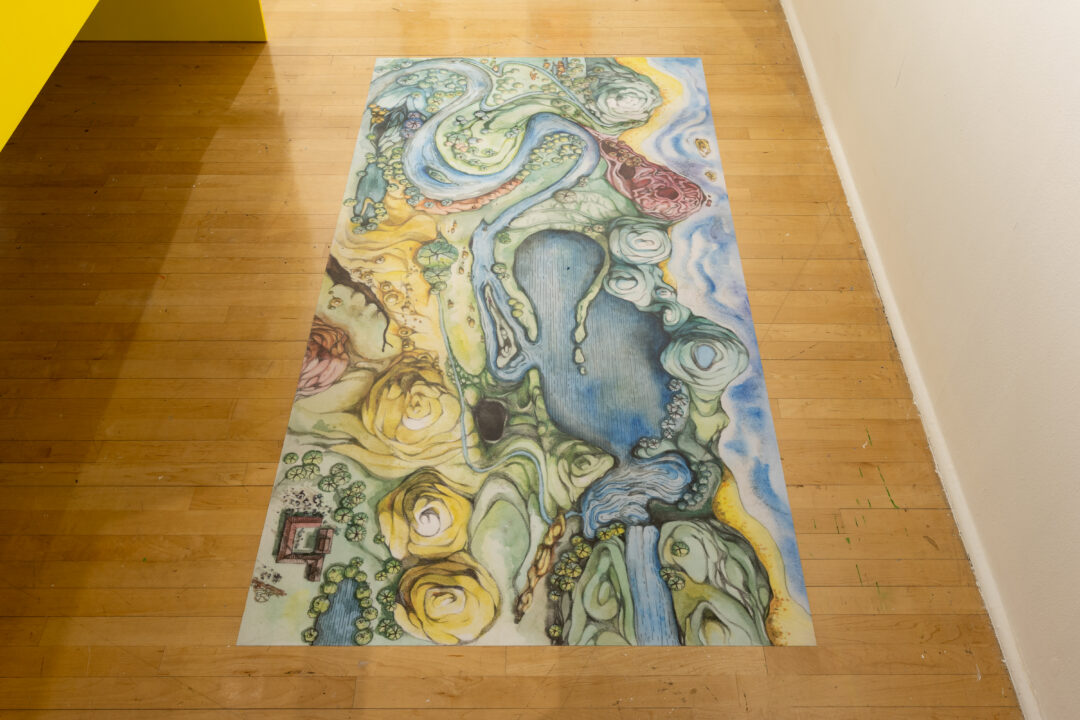
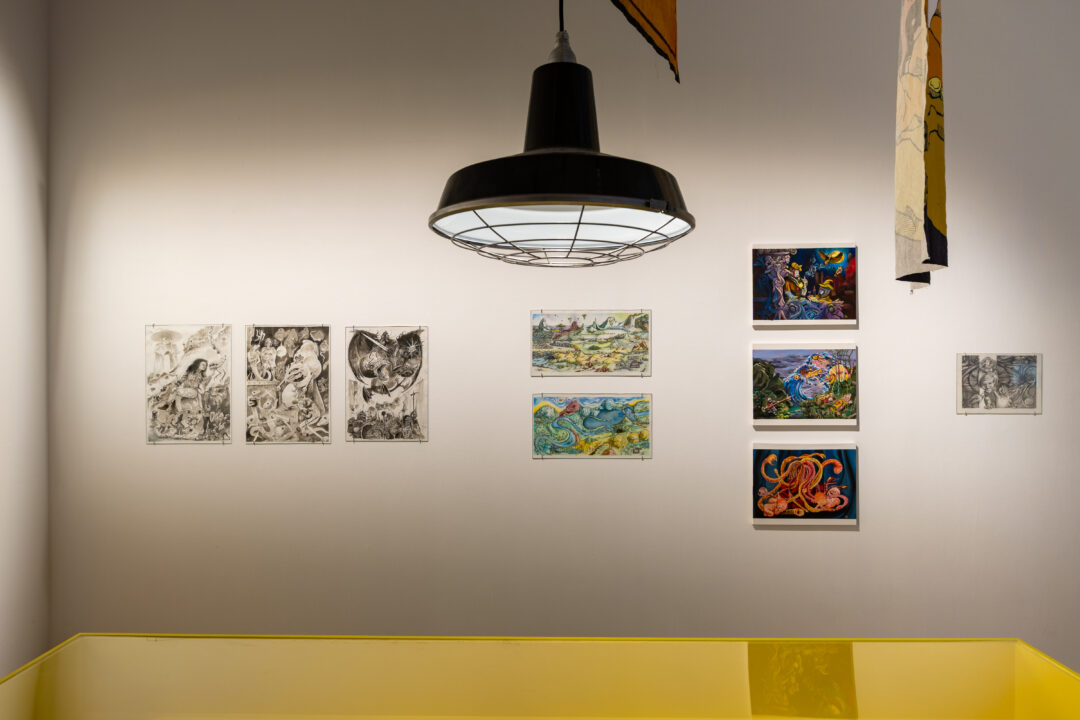
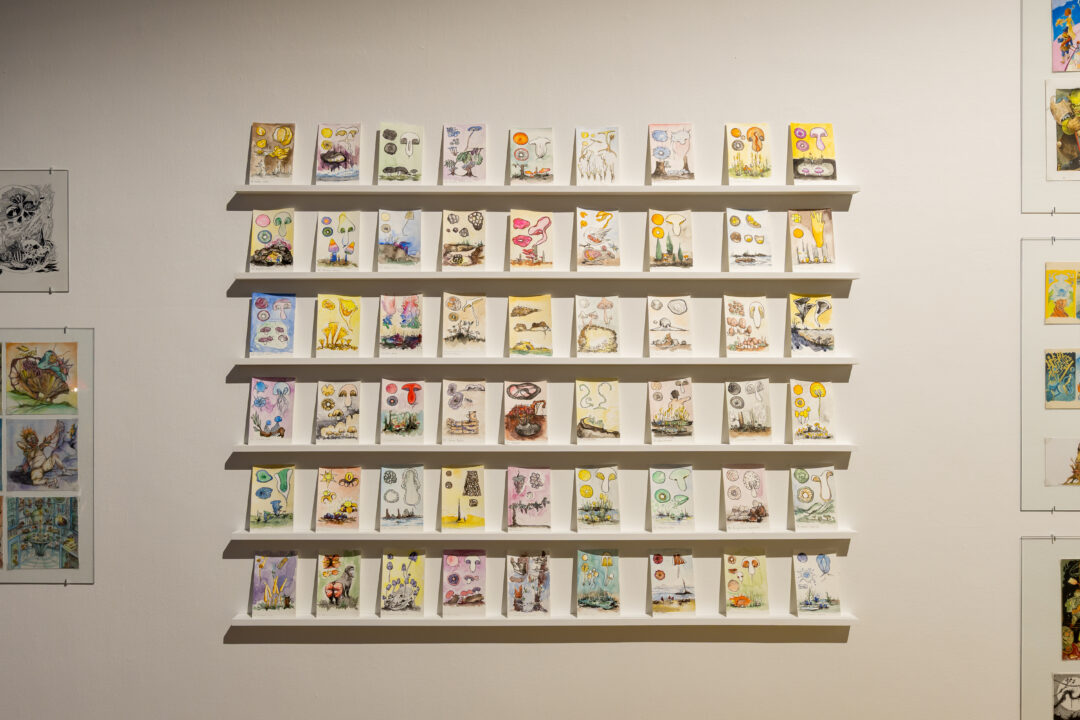
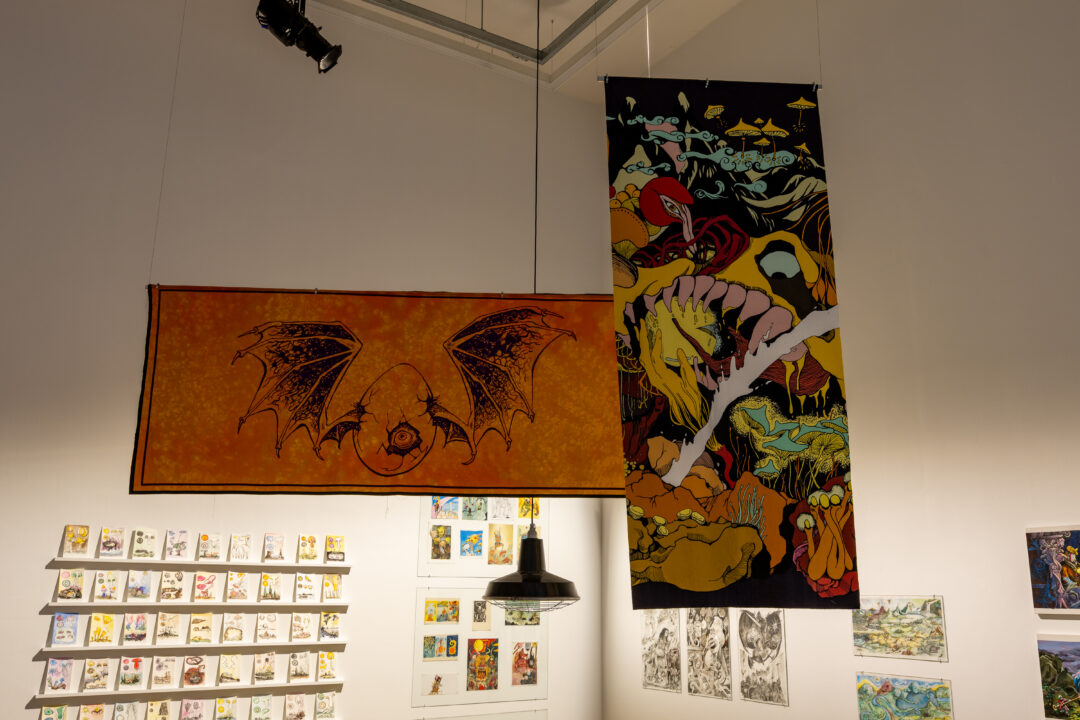
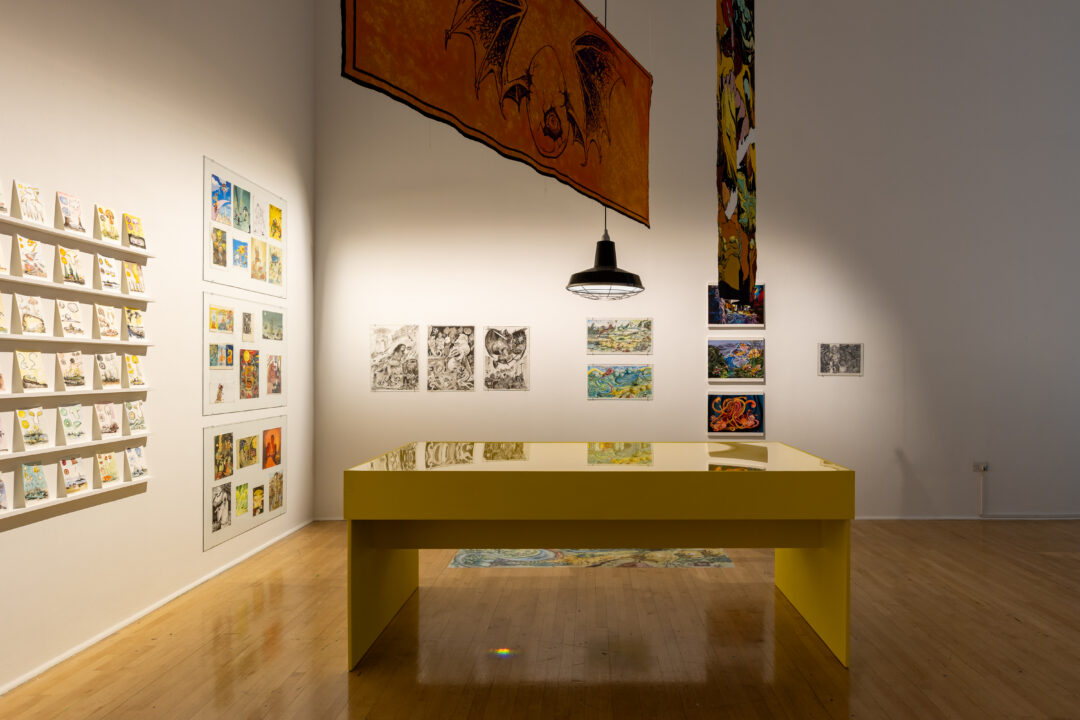
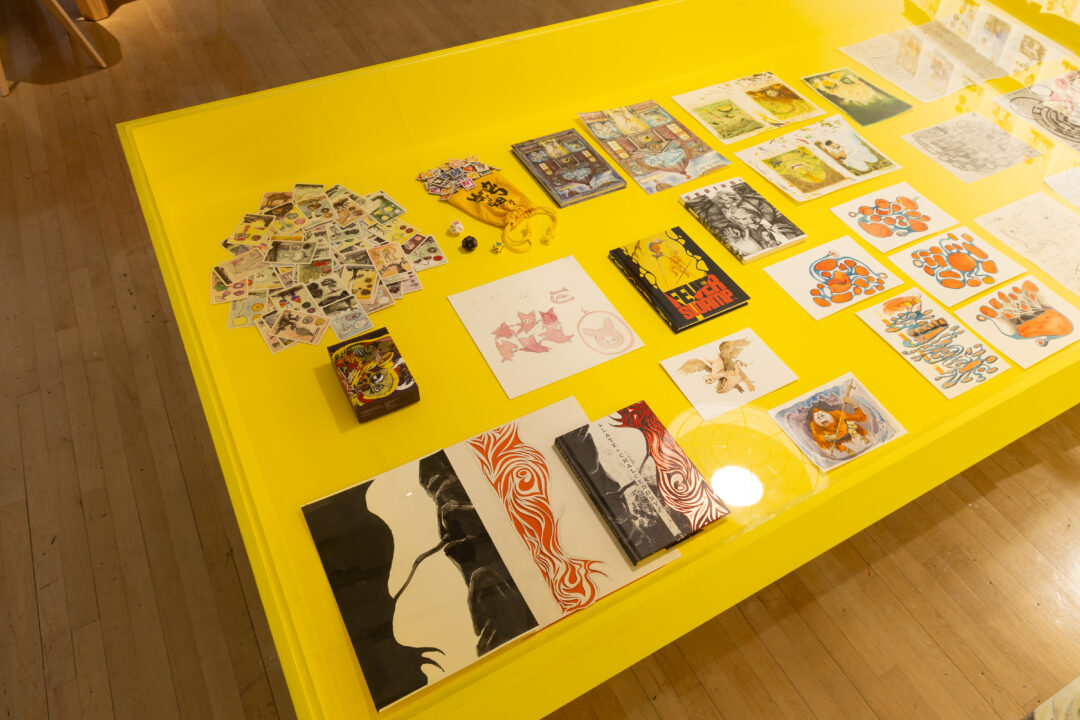
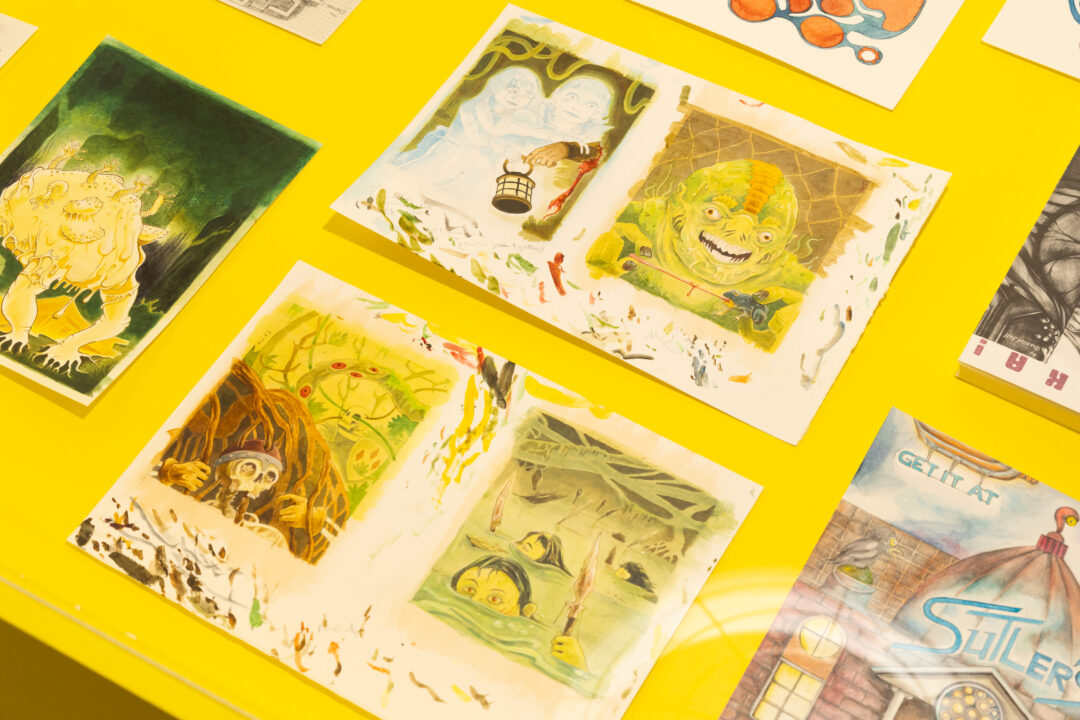
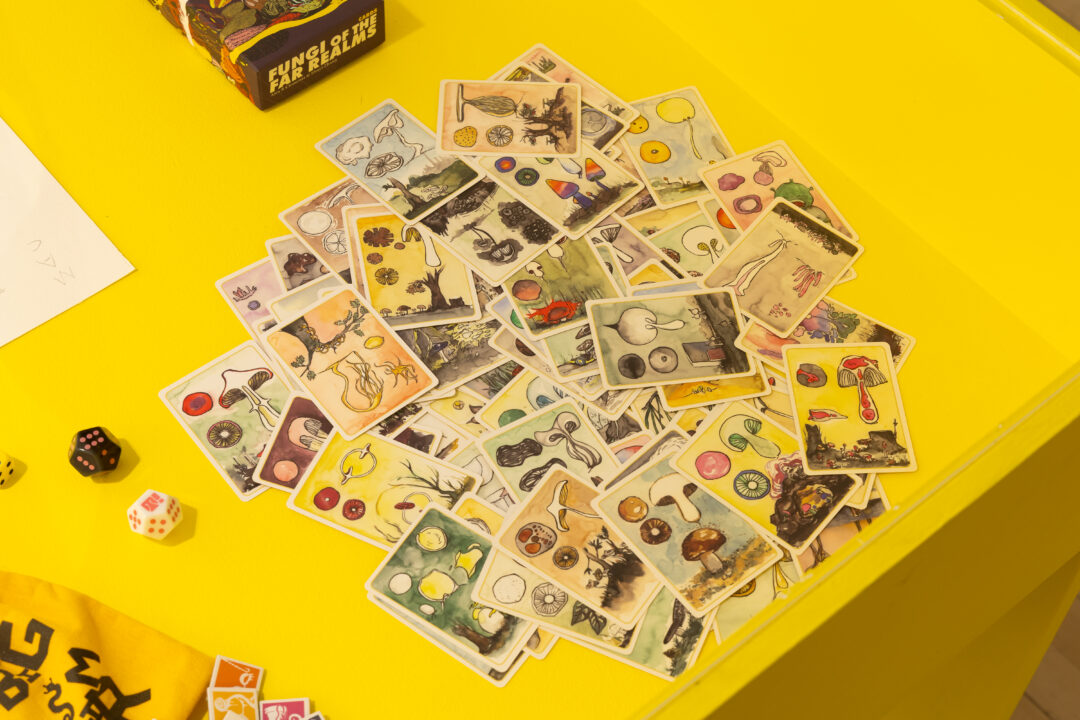
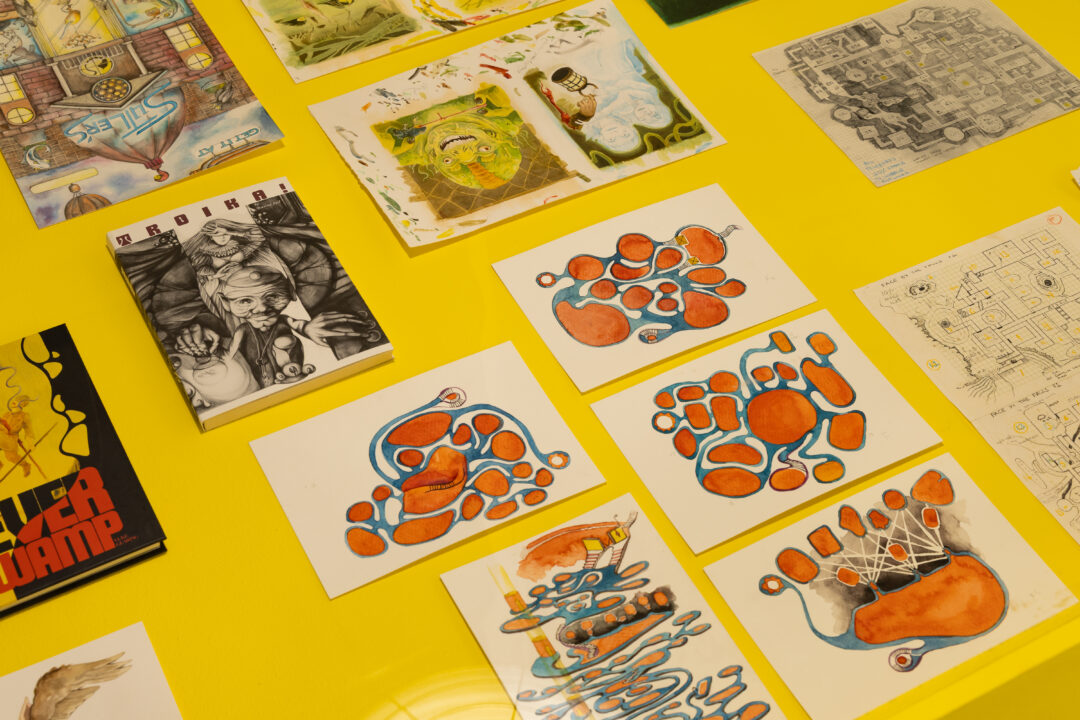
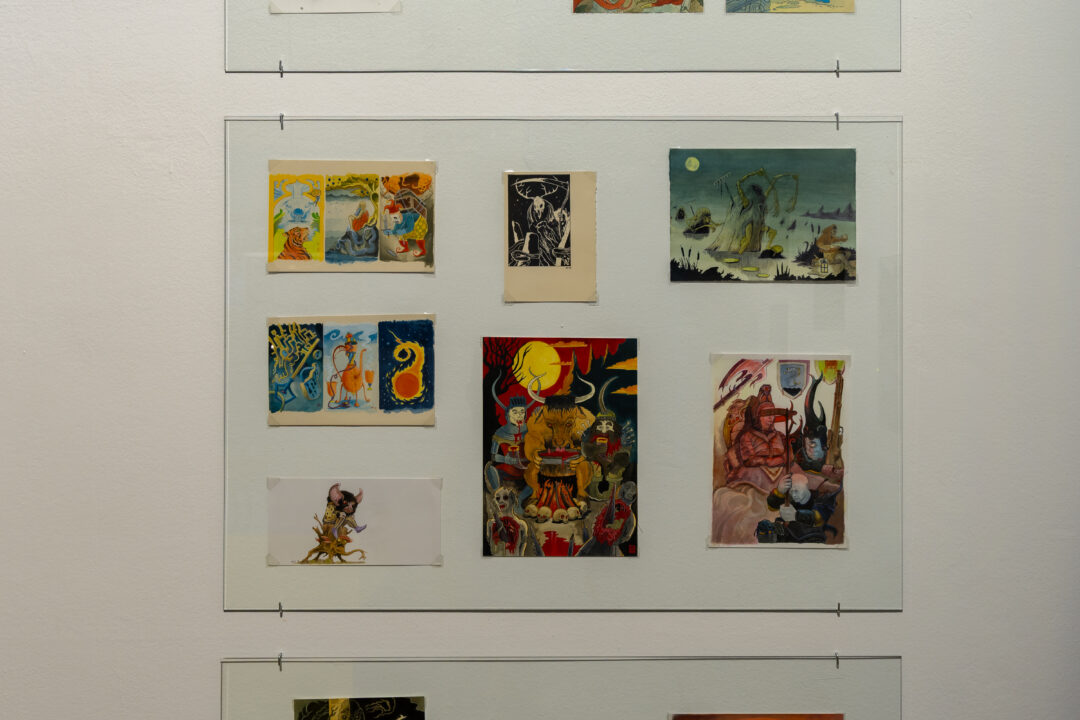
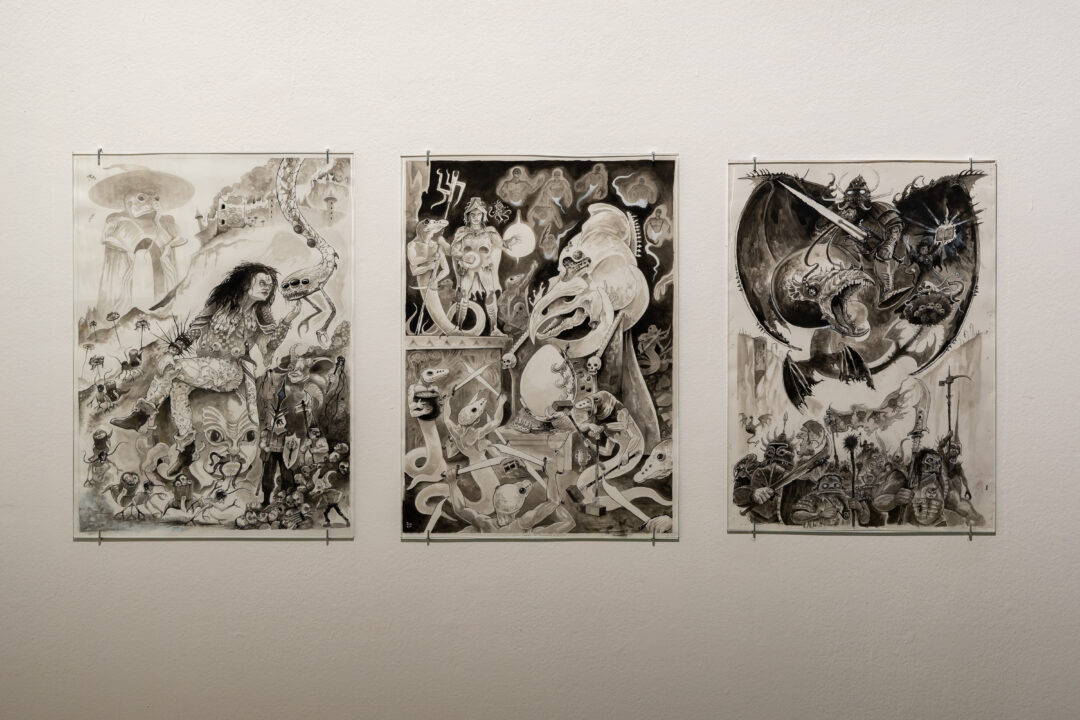
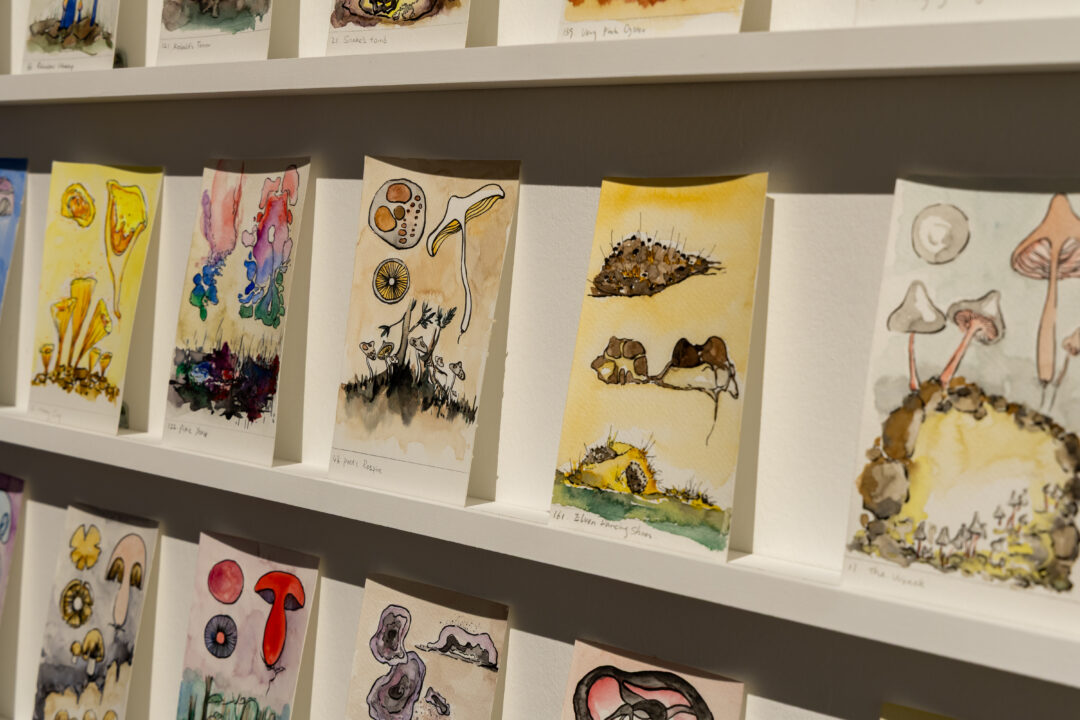
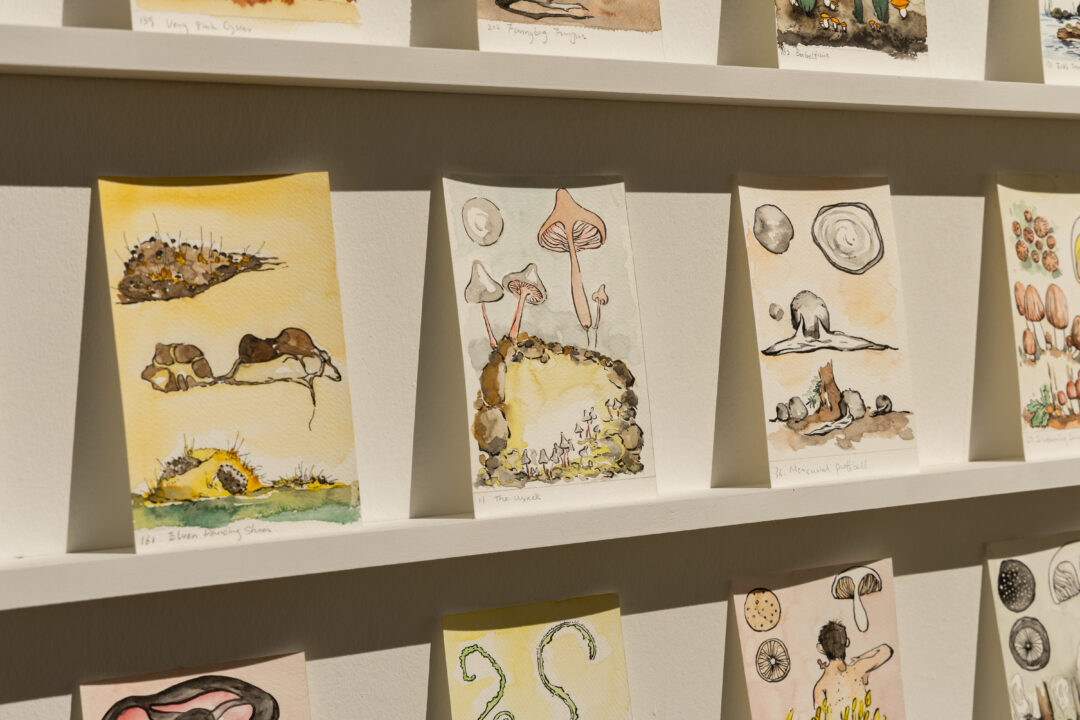
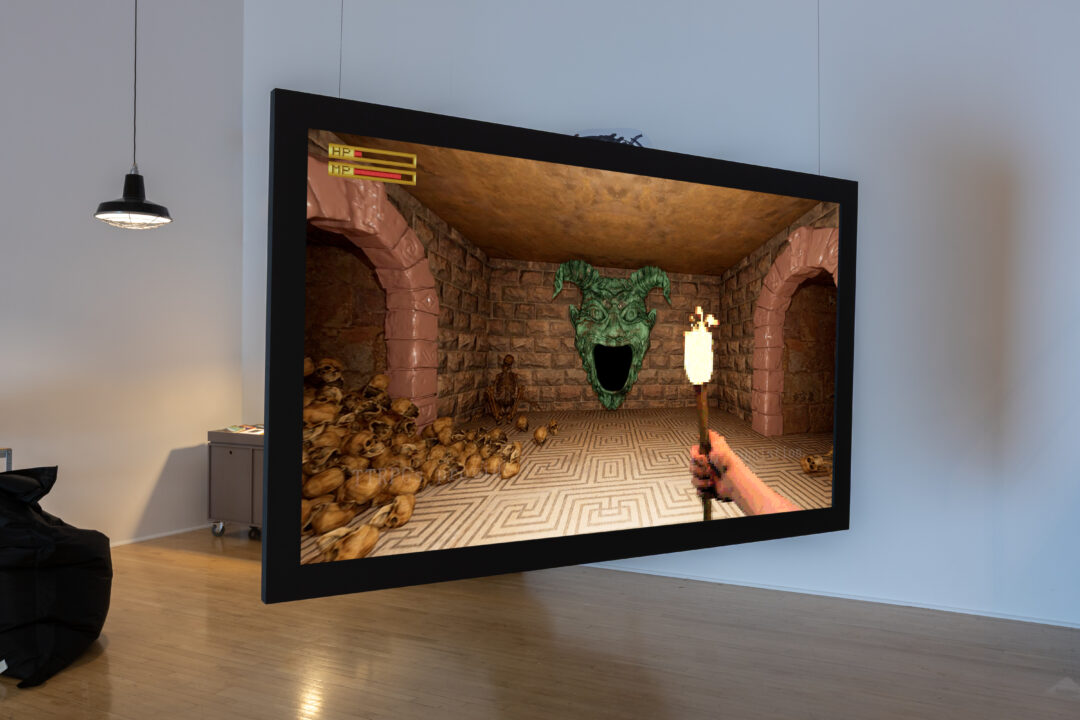
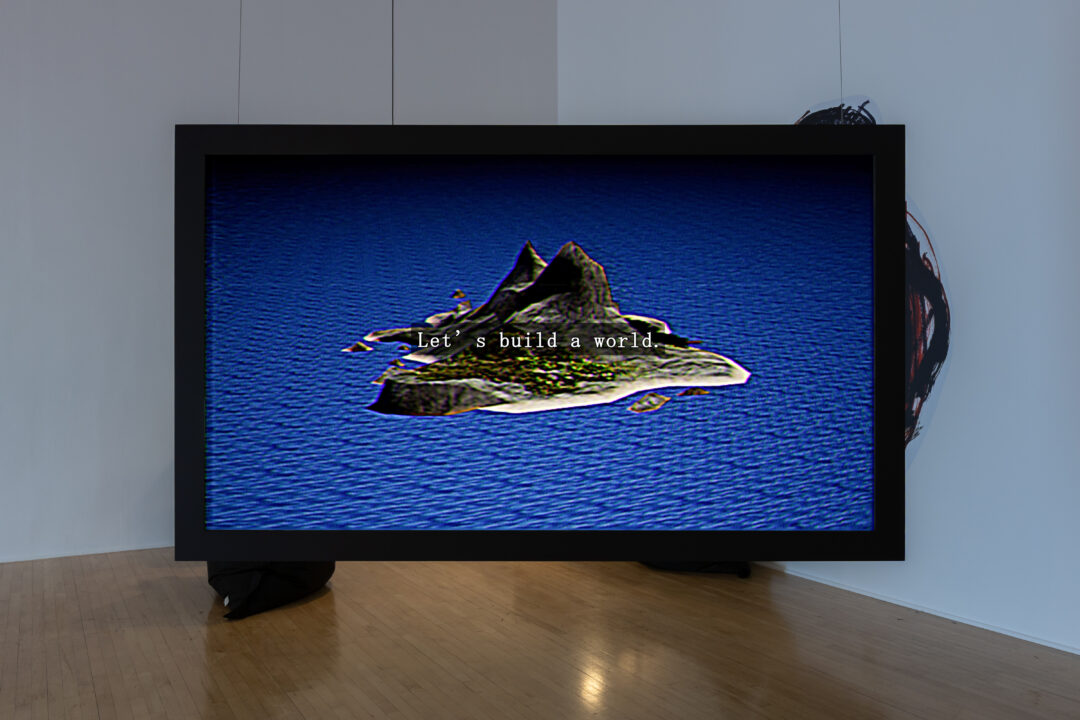
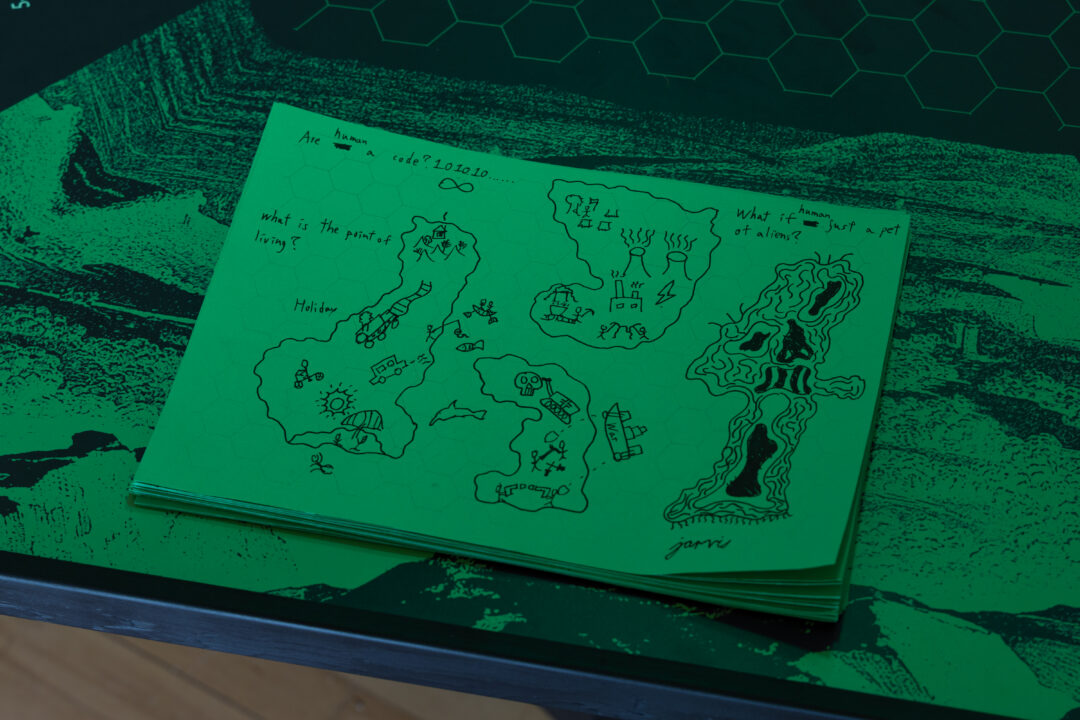
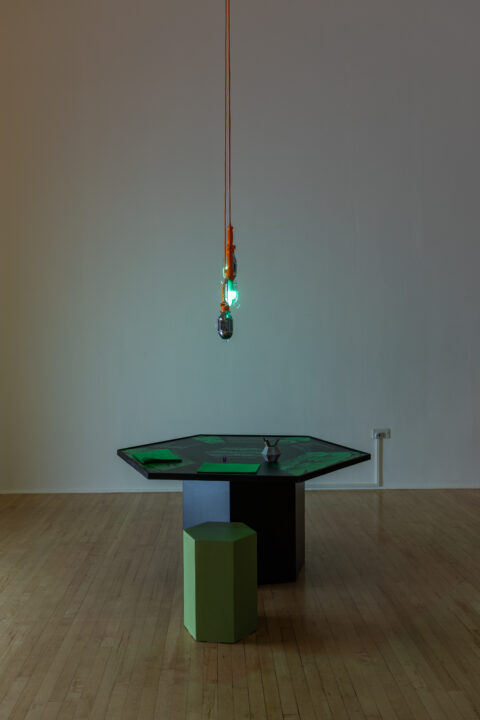
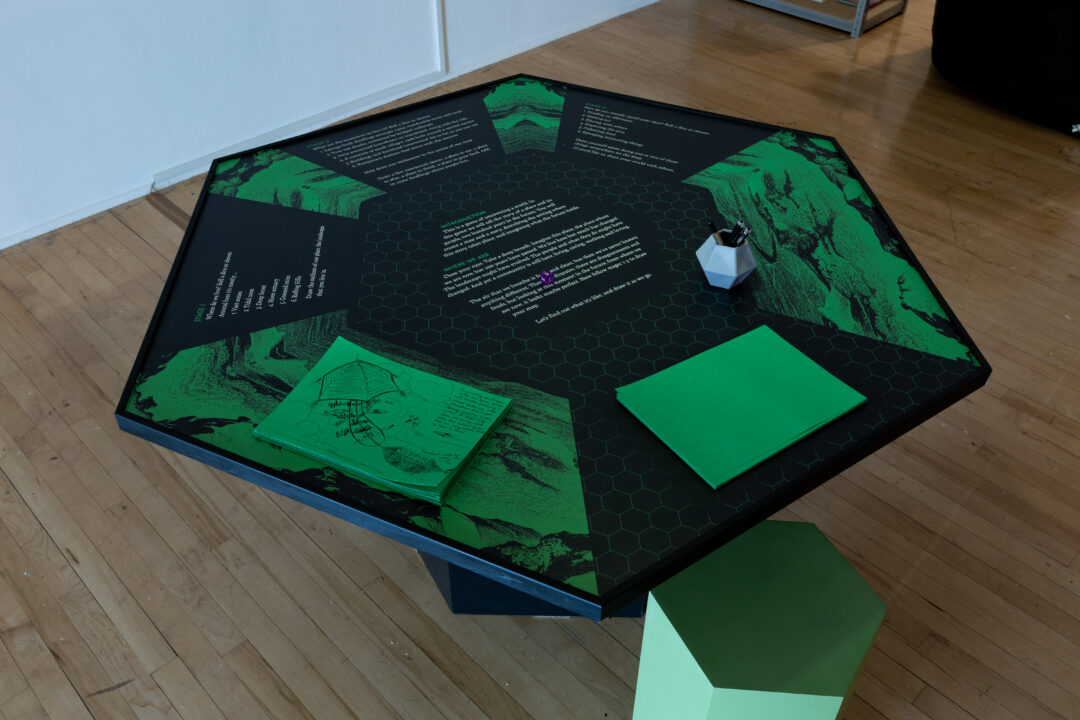
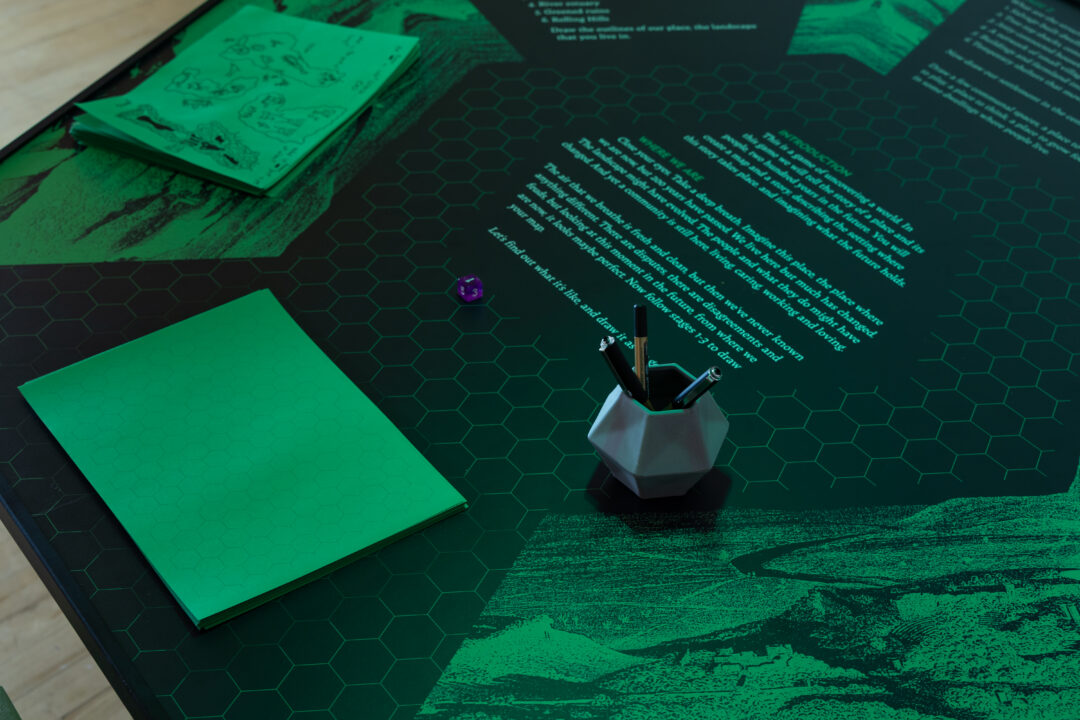
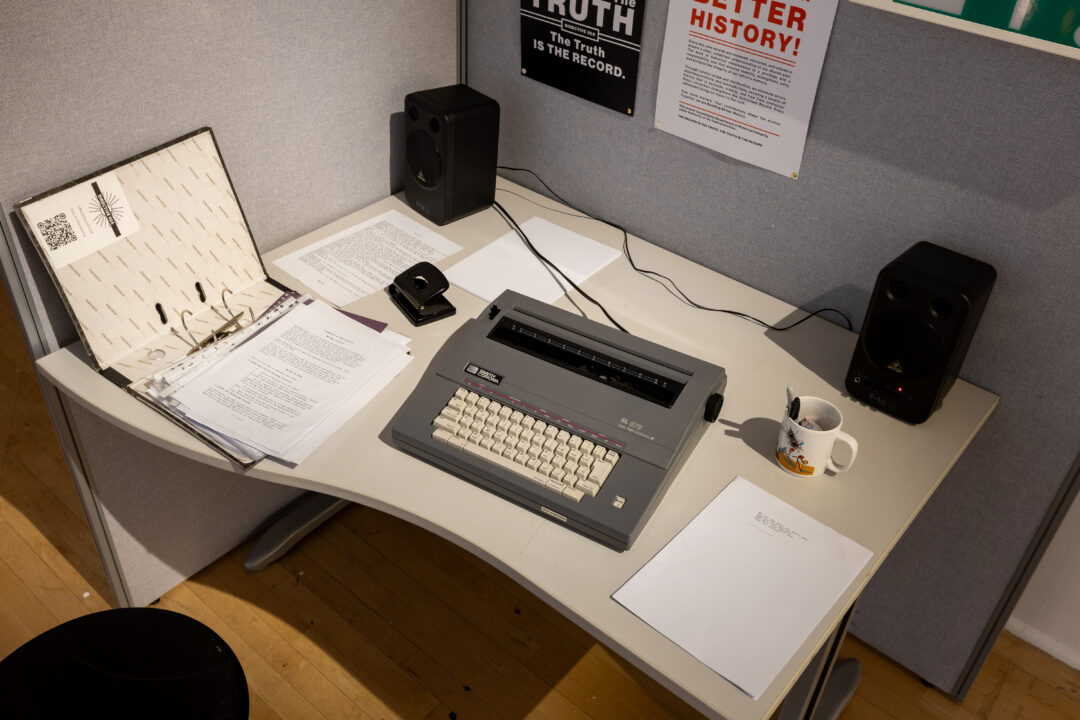
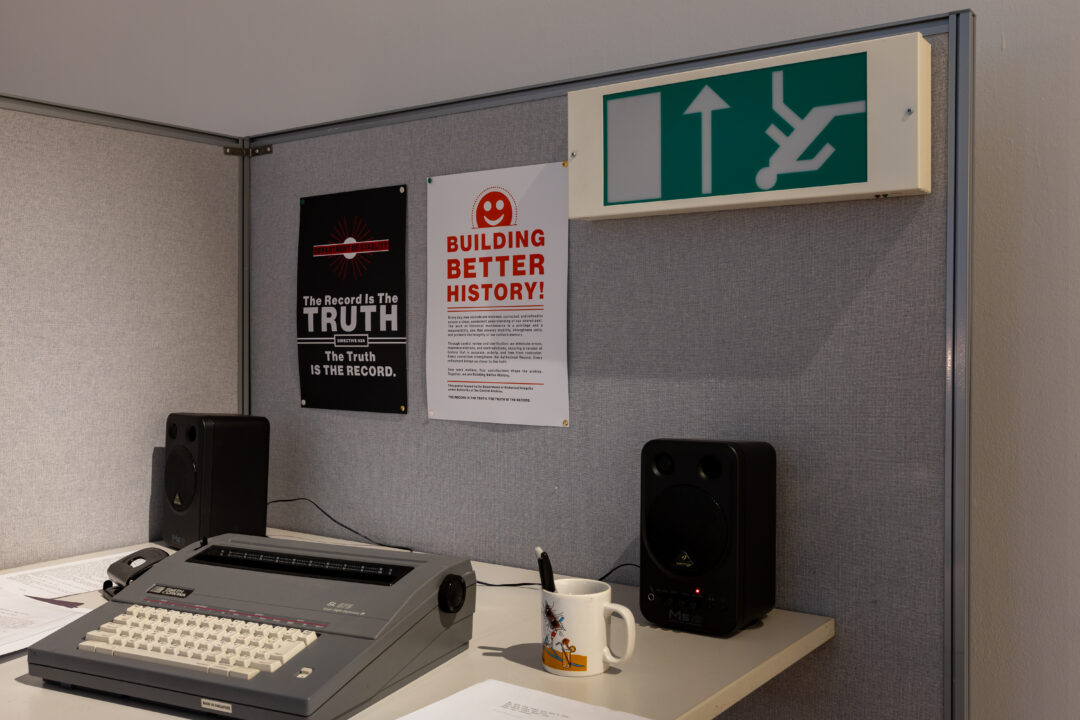
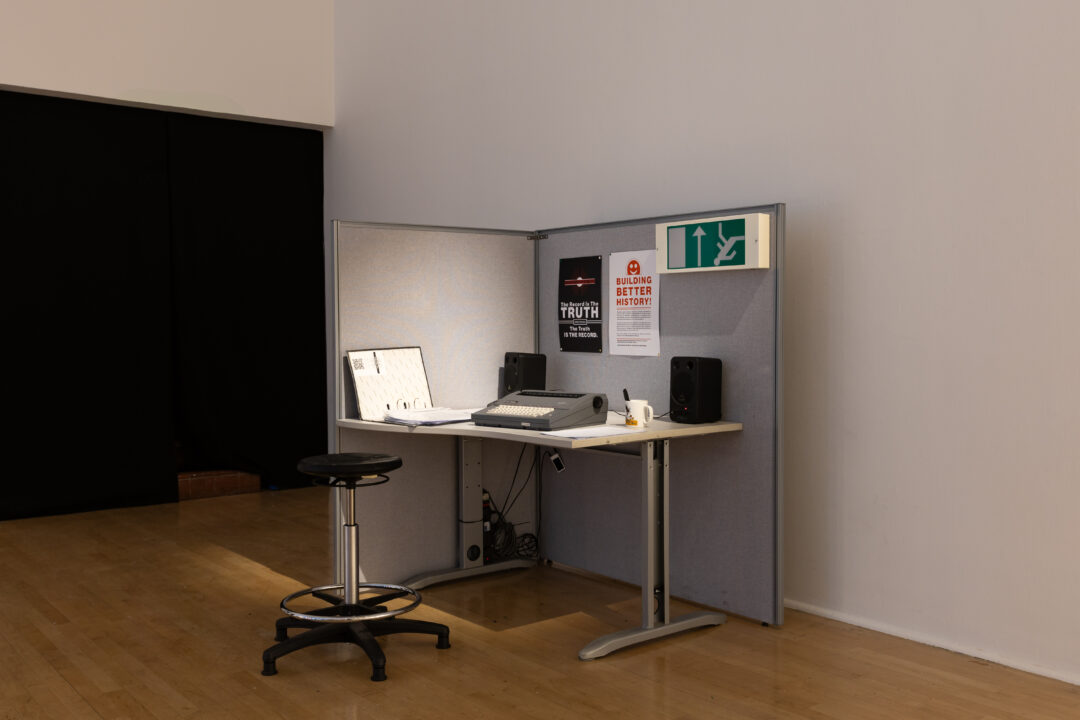
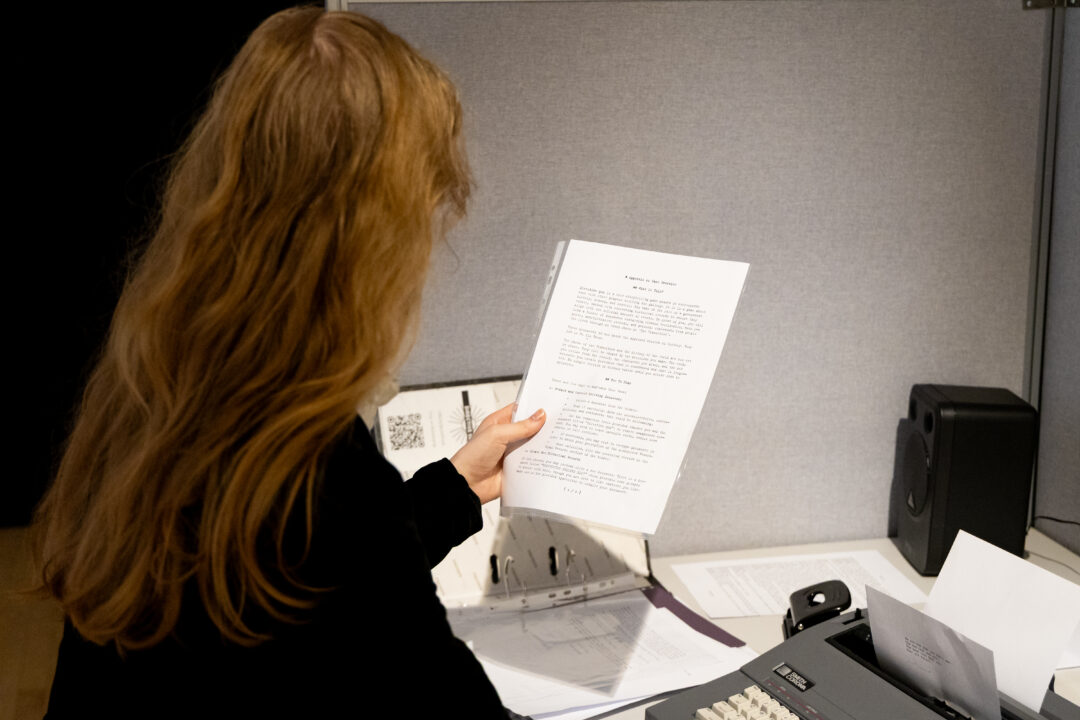
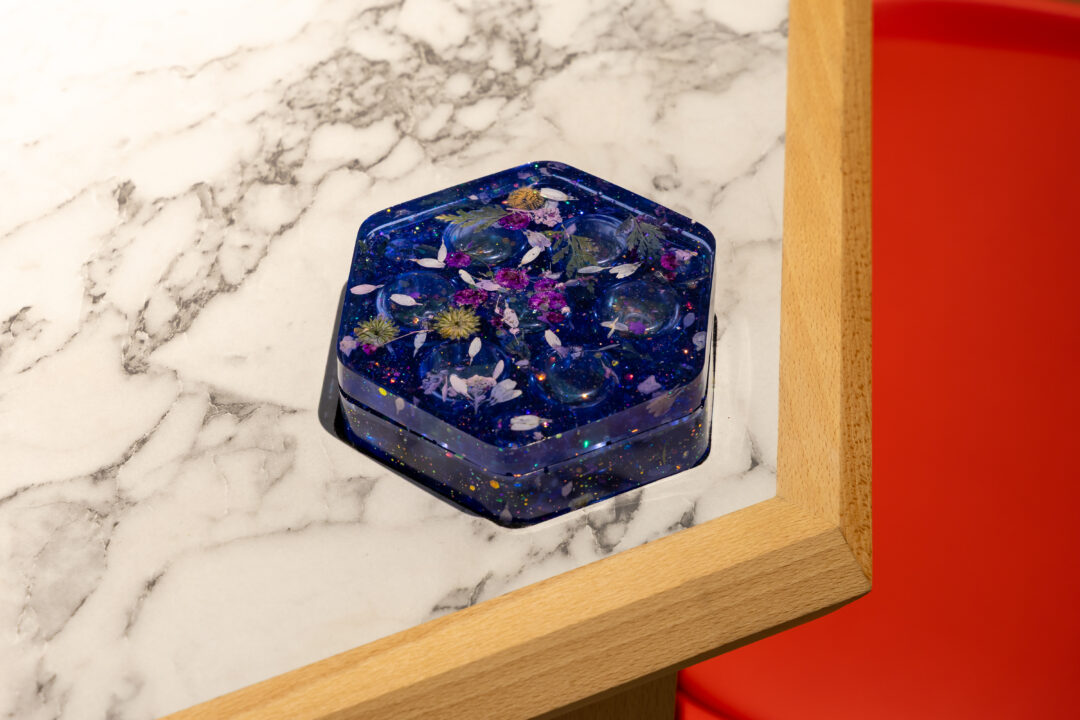
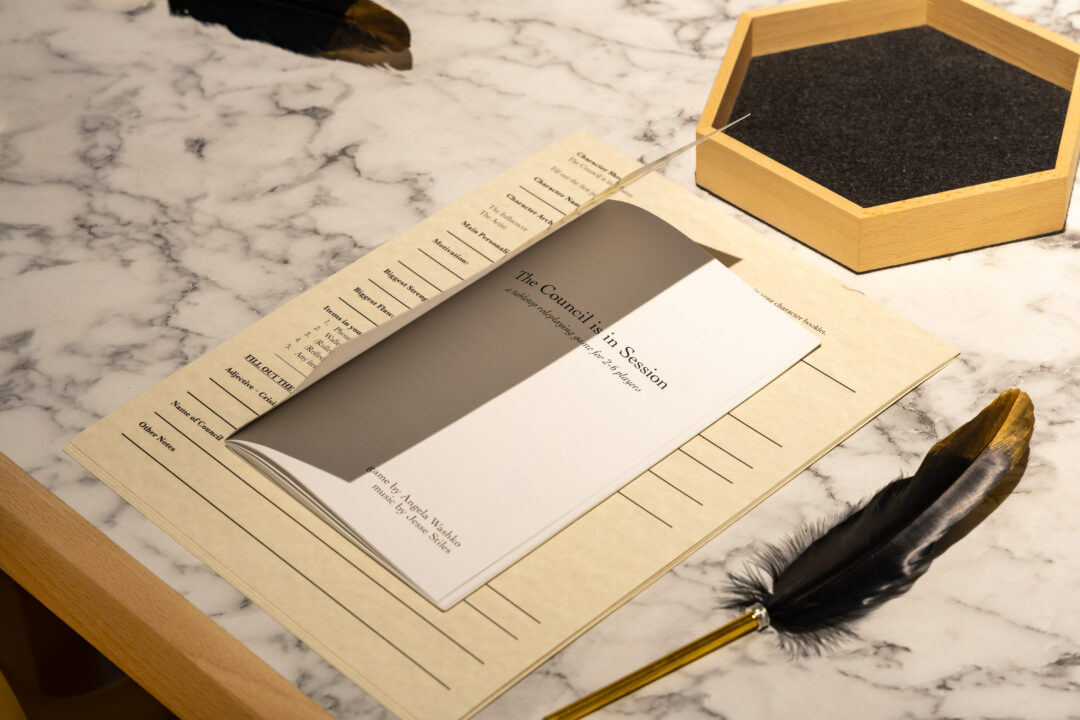
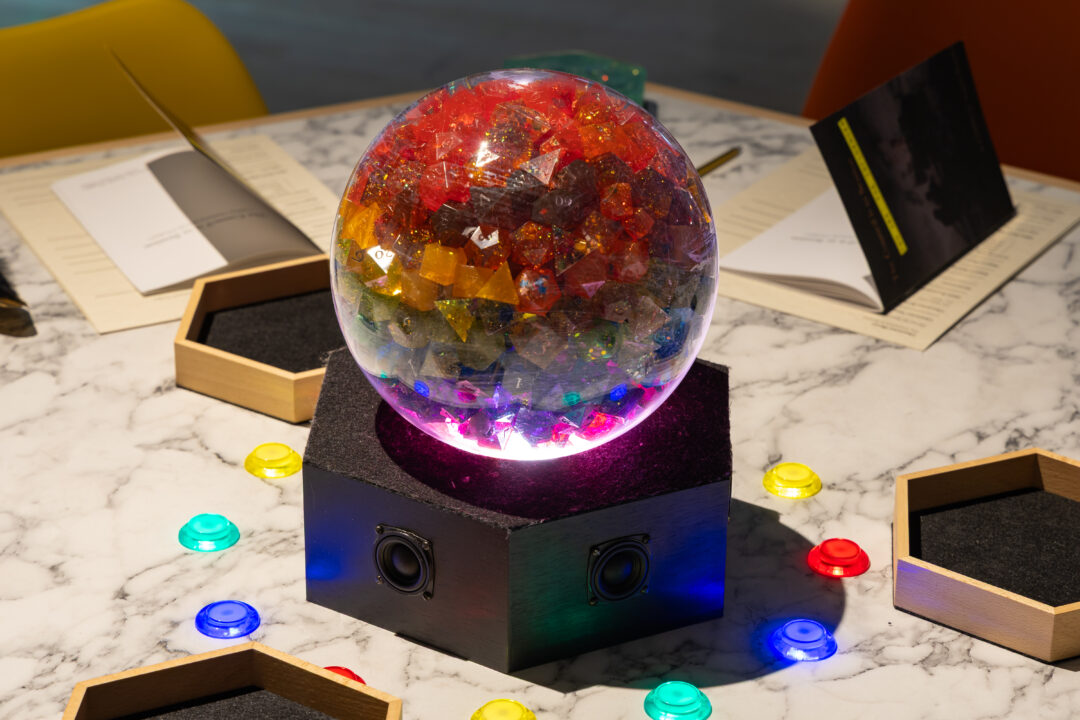
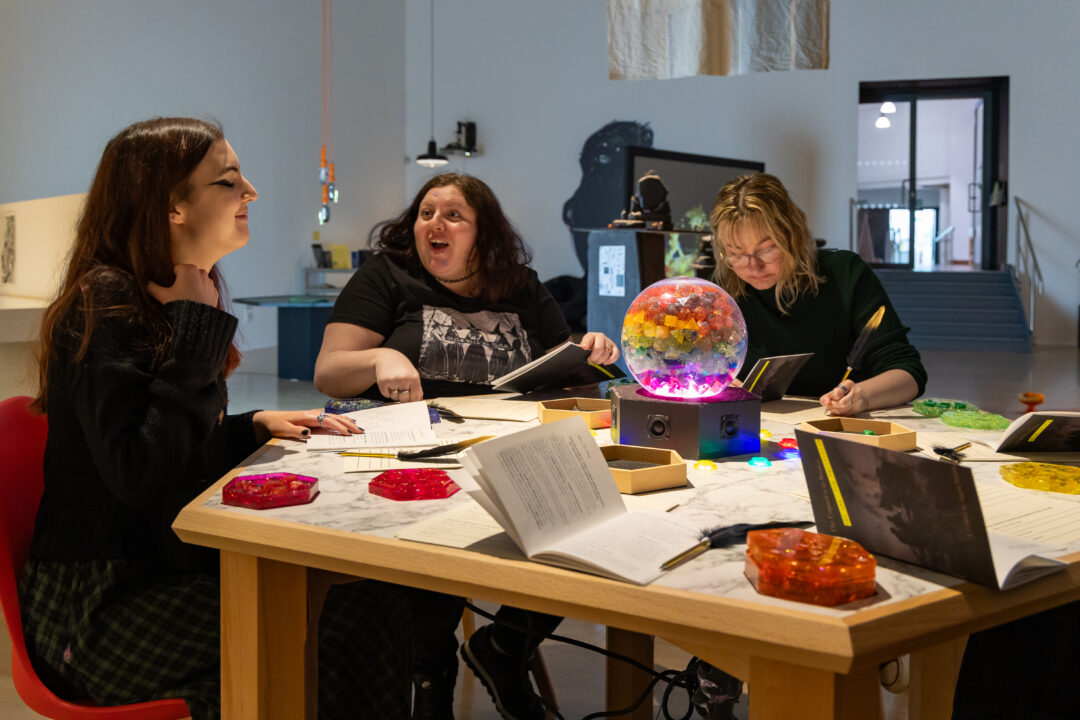
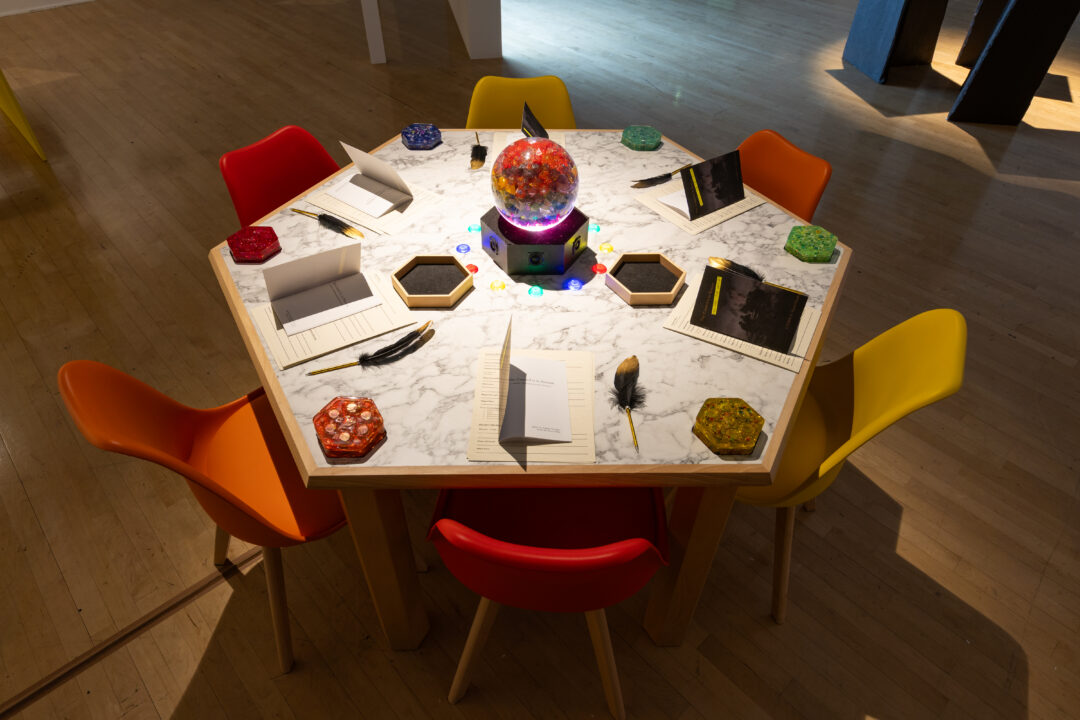
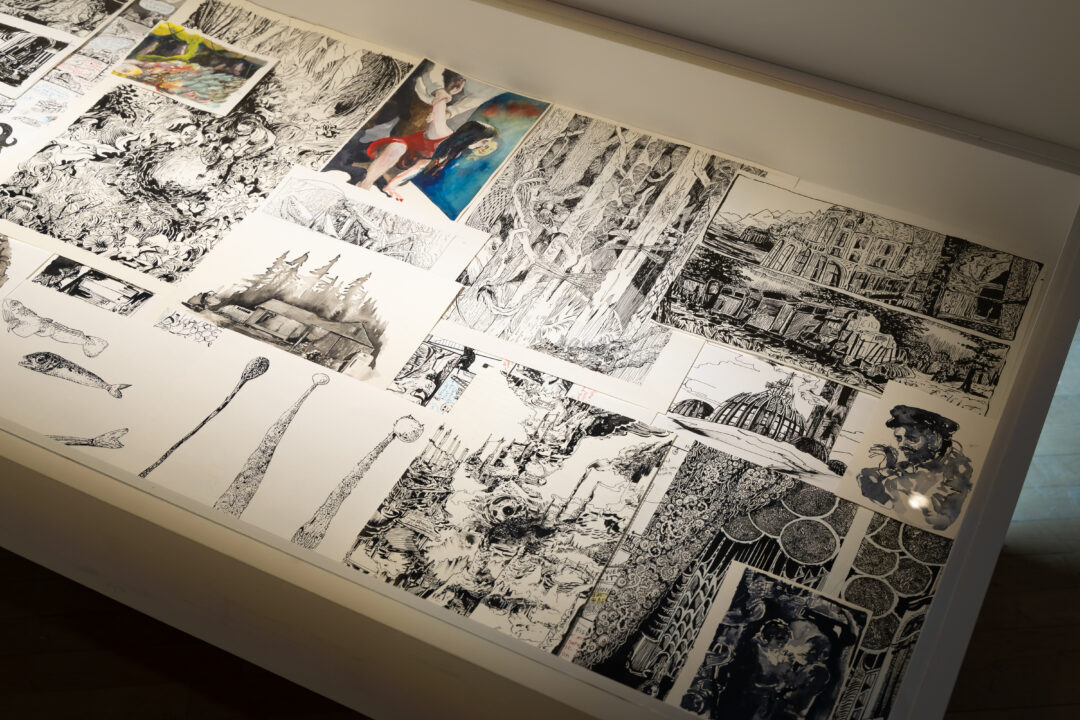
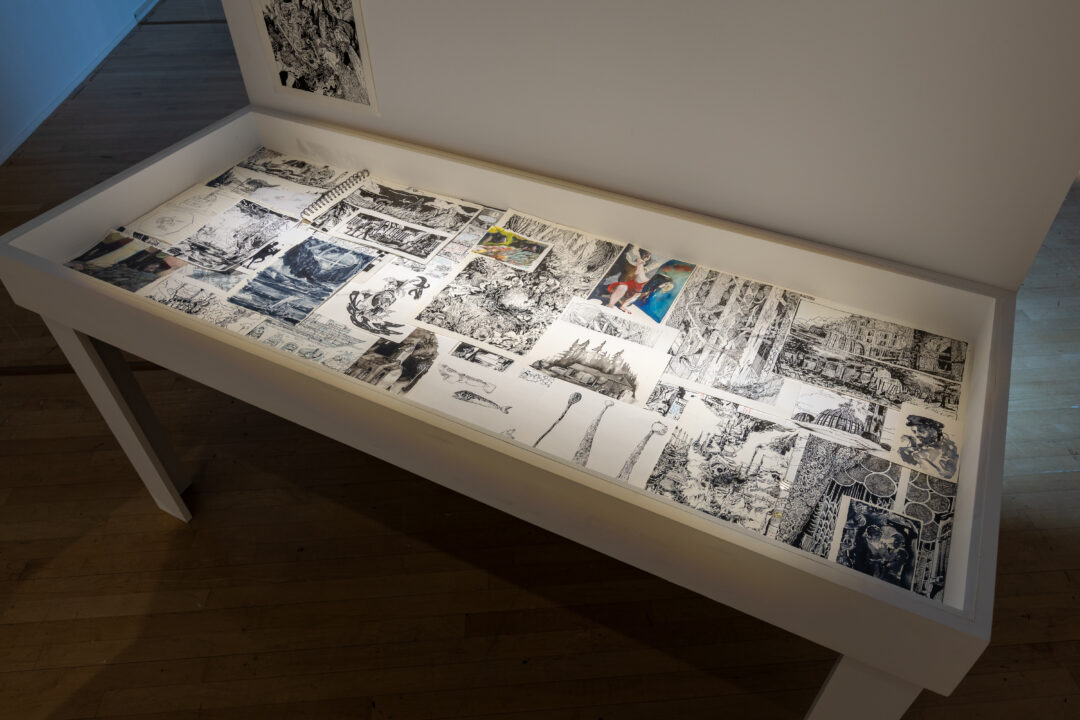
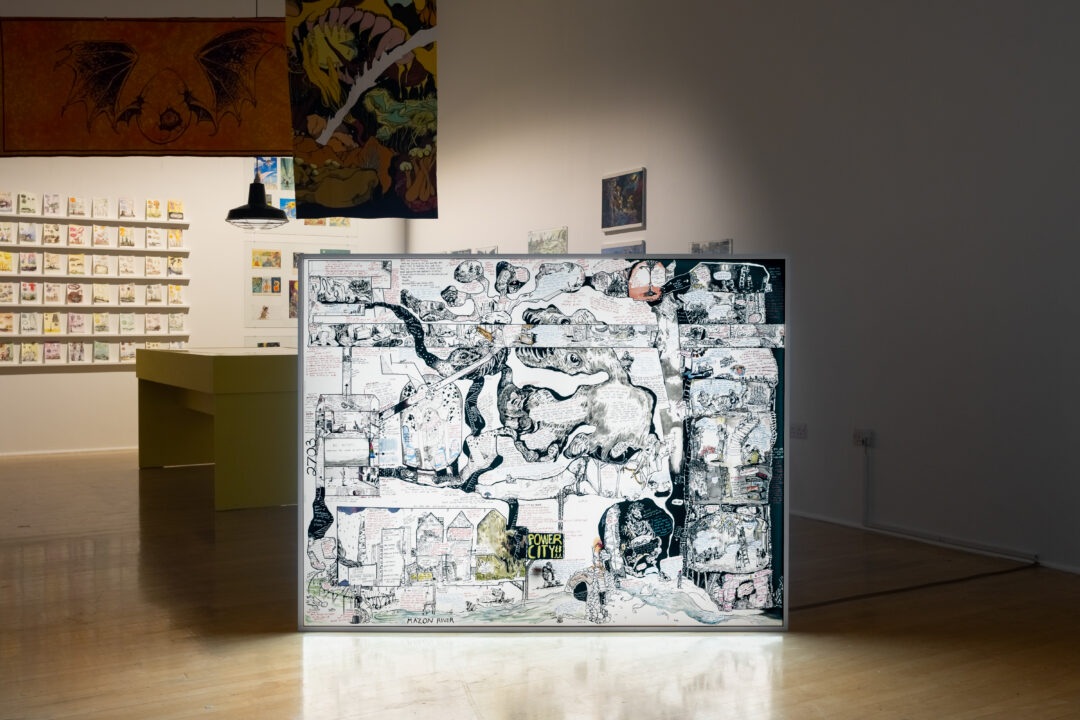
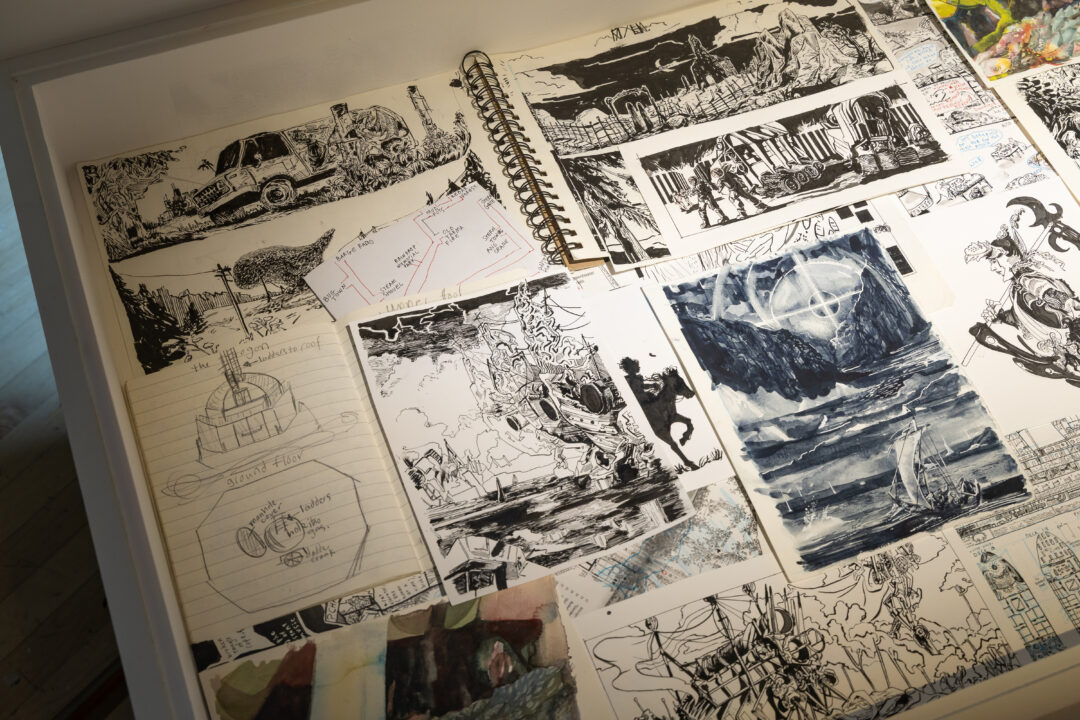

Angela Washko is an artist, filmmaker, and experimental game developer who creates new forums for discussions about feminism in spaces frequently hostile towards it. Her practice spans interventions in virtual environments, performance art, media installation, documentary film, and video games. A recipient of the United States Artists Fellowship, Creative Capital Award, Franklin Furnace Performance Fund, Impact Award at Indiecade, and Jury Awards for Best Documentary at the American Film Festival, San Francisco Documentary Film Festival, and Buffalo International Film Festival, Washko’s practice has been highlighted in The New Yorker, Frieze Magazine, Time Magazine, The Guardian, ArtForum, The Los Angeles Times, Art in America, The New York Times and more. Her projects have been presented internationally at venues including Museum of the Moving Image, Los Angeles Museum of Contemporary Art, the Milan Design Triennale, and the Shenzhen Animation Biennial.
Angela Washko is the Catherine B. Heller Collegiate Professor of Art & Design at University of Michigan where she founded the Roleplaying Realities Lab. This is a space for performers, creative technologists, game developers, writers, and grassroots activists to come together and simulate more inclusive, visionary, and radical prospective worlds through socially and politically engaged tabletop roleplaying projects made for and by those who have been historically marginalised from the mainstream games industry.
Andrew Walter is an illustrator and writer in the field of indie tabletop roleplaying games, primarily within the science fiction and fantasy genres. He graduated with a BA in Illustration from Kingston in 2007 and has lived and worked in London since. The majority of his work is in physical media such as pencil, inks and watercolour, a consequence of inspiration drawn from the rugged worlds of pulp fantasy paperbacks, classic RPG and computer game art, and underground death metal artwork.
His best known illustrated works include covers and illustrations for B/X Essentials (later to become Old School Essentials), the original Dolmenwood setting zines, Fever Swamp, and Slate and Chalcedony. Some of his published writing for RPGs includes Fronds of Benevolence, Whalgravaak’s Warehouse and Slipgate Chokepoint all of which are also illustrated by the author. He was listed as an Artist of Note in Stu Horvath’s acclaimed 2023 survey of independent roleplaying games Monsters, Aliens and Holes in the Ground.
Amanda Lee Franck is an artist and writer living in Chicago. She studied painting and natural history illustration and has spent many hours drawing the dinosaur bones at the Field Museum of Natural History. The first RPG she ever ran (and first zine she ever published) was You Got a Job on the Garbage Barge. She has written and illustrated books for Games Omnivorous, Gauntlet RPG, Exalted Funeral Press, Mausritter, and many others.
Chris Bissette is an award-winning multidisciplinary creative whose practice encompasses writing, music, and graphic design. Although they primarily work within the field of tabletop role-playing games his career has seen them produce music videos and score films, and in 2025 they will be composing music for the upcoming Mörk Borg video game.
In 2024 Chris was commissioned to write an adventure for Paizo’s Pathfinder Society line and provided the score for the short horror film One Star Review. In 2023 they helped facilitate the Storytelling Collective’s TTRPG Reading Club. They have written adventures and supplements for Pathfinder 2, Fallout: The Roleplaying Game, Hunter: The Reckoning, and many more, and contributed two albums of original music to SoulMuppet’s Orbital Blues and its expansion Orbital Blues: Afterburn. In 2020 his solo journaling game The Wretched was released to popular and critical acclaim, appearing on multiple end-of-year lists and spawning hundreds of new games based on its Wretched & Alone engine. In the same year he was chosen as one of the Storytelling Collective’s inaugural Creative Laureates, and was asked to write a set of lessons about adventure design for their students.
Chris’ work has been shortlisted for the Origins Awards and nominated for the ENnie Awards. They are a member of the SFWA, where he is an active member of the Game Writing Committee.
David Blandy (he / him) is an artist examining global structures of control and networks of resistance, in areas as diverse as ecology, history, science and arenas of play. He makes videos, games, sound and ephemera, deconstructing forms to put them back together again.
Blandy searches for meaning in cultural life, through an expanded form of auto-anthropology, sifting through multiple forms of archive, from historic texts to academic archives, archaeology and ecological theory, twitch streams and film archives, weaving poetic works that explore the complexities of the contemporary subject. Perhaps it’s hubris, but he wants to build complex stories that sketch out a future of interdependence, through visual poetry and immersive play.
Represented by Seventeen Gallery, London. His films are distributed by LUX, London.
He has exhibited and performed at venues nationally and worldwide, with solo shows at John Hansard Gallery, Southampton; Towner Gallery, Eastbourne; Focal Point Gallery, Southend-on-Sea; The Baltic, Gateshead; Turner Contemporary, Margate; Spike Island, Bristol; The Exchange, Newlyn; Künstlerhaus Stuttgart, Germany. Blandy has also exhibited in museums internationally including at Serpentine Gallery, London; 21st Century Museum of Contemporary Art, Kanazawa; Art Tower Mito, Tokyo; Kiasma Contemporary Art Museum, Helsinki; Tate Modern, London; & MoMA PS1, New York. Alongside writer and publisher Jamie Sutcliffe and curator Rebecca Edwards, Blandy curated Areas Of Effect: Planar Systems, Critical Roles, and Gaming Imaginaries, a symposium and live play session at Arebyte London. He also has a collaborative joint practice with artist Larry Achiampong. Genetic Automata, at Wellcome Collection was their first museum exhibition as a duo.
Laurie O’Connel of Twelve Pins Press is a London-based writer who writes fiction and game texts about broken systems, adaptation and resistance. You can find Laurie online or follow him on Bluesky.
With a loose, haphazard, gestural style often veering on the edge of self destruction, recognizable as it is metamorphic, Scrap has inflicted this approach on everything from stages, carparks, junk materials, clothing, tape recordings and human skin.
Gamebooks, specifically the broke and baroque scenes of DIY rpgs, have been a viable substrate for Scrap, and he’s now drawn in several books. More than several even. Several several.
Shuyi Zhang is an artist, exhibition designer, and bookshop owner who has accidentally become intimately familiar with every process in the life of a book. He began his education in architecture where he explored his passion for design and drawing, but once he stepped into the fantasy world he found he could explore a lot more than buildings. A mixed use of media with pencil, ink, and watercolour is his main preference, creating a soft fantasy world of his own.
His best known work is Fungi of the Far Realms, a book about a fantasy mushroom world. He has also worked on a variety of books published by Melsonian Arts Council, including Troika! RPG. He is currently working on a comic series Stay!.
Tom K Kemp employs roleplaying game design, animation, and filmmaking to tell collaborative ghost stories about complexity and the humans who constitute it. Working through the roleplaying game form to combine political simulation and speculative analysis into semi-improvised group storytelling, participants are invited to parse systems, complicate common narratives, and synthesise an array of knowledges into plot, dialogue, diagram and performance.
By conflating global systems, political metaphor and organisational infrastructure with genre fiction, players’ personal experience and ludic tangents, his works attempt an evocation of the emancipatory weirdness of group agency and the unintended consequences of making models of the world.
He has exhibited at La Casa Encendida, Madrid, EYE Filmmuseum, Amsterdam, Quad, Derby and the MKG Hamburg. He has attended residencies at the Rijksakademie van Beeldende Kunsten, Amsterdam, Triangle-Astérides Marseille, Cité International des Arts, Paris and Rupert, Vilnius.
Zedeck Siew is a writer, translator, and game designer based in Port Dickson, Malaysia. With visual artist Sharon Chin, he created Creatures of Near Kingdoms, an illustrated guide to imaginary Malaysian animals and plants. He writes adventure texts for tabletop roleplaying games – most notably Lorn Song of the Bachelor (2019); Spy in the House of Eth (2020); Reach of the Roach God (2023), and To Put Away A Sword (2024). He is slowly being poisoned by a petroleum refinery 200m from his garden, and worries often about family ghosts.
David Blandy (he / him) is an artist examining global structures of control and networks of resistance, in areas as diverse as ecology, history, science and arenas of play. He makes videos, games, sound and ephemera, deconstructing forms to put them back together again.
Blandy searches for meaning in cultural life, through an expanded form of auto-anthropology, sifting through multiple forms of archive, from historic texts to academic archives, archaeology and ecological theory, twitch streams and film archives, weaving poetic works that explore the complexities of the contemporary subject. Perhaps it’s hubris, but he wants to build complex stories that sketch out a future of interdependence, through visual poetry and immersive play.
Represented by Seventeen Gallery, London. His films are distributed by LUX, London.
He has exhibited and performed at venues nationally and worldwide, with solo shows at John Hansard Gallery, Southampton; Towner Gallery, Eastbourne; Focal Point Gallery, Southend-on-Sea; The Baltic, Gateshead; Turner Contemporary, Margate; Spike Island, Bristol; The Exchange, Newlyn; Künstlerhaus Stuttgart, Germany. Blandy has also exhibited in museums internationally including at Serpentine Gallery, London; 21st Century Museum of Contemporary Art, Kanazawa; Art Tower Mito, Tokyo; Kiasma Contemporary Art Museum, Helsinki; Tate Modern, London; & MoMA PS1, New York. Alongside writer and publisher Jamie Sutcliffe and curator Rebecca Edwards, Blandy curated Areas Of Effect: Planar Systems, Critical Roles, and Gaming Imaginaries, a symposium and live play session at Arebyte London. He also has a collaborative joint practice with artist Larry Achiampong. Genetic Automata, at Wellcome Collection was their first museum exhibition as a duo.
Rebecca Edwards is a London based curator, writer and producer. Her interests include cultivating experimental curatorial methods, interweaving fluid approaches to production, dissemination and representation of artwork, and exploring the nested fields of technology, digital aesthetics and internet culture. Rebecca was the curator at arebyte Gallery from 2017 – 2024.
Jamie Sutcliffe is a writer, curator, and co-director of Strange Attractor Press.
His work explores artistic encounters with science fictive fabulation, the politics of gaming, animation and its multiple entanglements with developments in the life sciences, haunted media, and the persistence of myth, all understood as technologies of selfhood.
His essays, interviews and reviews have been published internationally by Art Monthly, Art Review, e-flux Criticism, Frieze, Rhizome and The White Review.
He is the editor of Documents Of Contemporary Art: Magic, published by The Whitechapel Gallery and The MIT Press, and co-editor of Weeb Theory, a collection of theoretical resources for artists encountering the intermedial fan cultures of animation.
Adam Sinclair has specialised in 3D modelling and animation for real time environments and video work since 2007. He has worked in close collaboration with some of the UK’s most prominent artists. These include Ed Atkins, Helen Marten (2016 Turner prize winner), Elizabeth Price (2012 Turner prize winner) and Tai Shani (2019 Turner Prize Winner). Adam’s collaborative work has been displayed in many locations around the world including the museum of modern art – New York, the Venice Biennale, and Palais de Tokyo – Paris. He has helped artists use new technology to create interactive and immersive experiences.
Lotti V Closs (B. Whitstable 1987) lives and works in Manchester, UK.
She studied MFA Sculpture at West Dean College graduating in 2014, and has exhibited nationally and internationally. Her multi-disciplinary sculptural practice has a core of intuitive, introspective making, working closely by hand with elements of intimate scale. Her work reflects key themes of complexities of play and relationship through material conversation which often straddle both the domestic and the theatrical.
Image: Andrew Walter, courtesy the artist.
Social Resource Project for Tennis Clubs is a solo exhibition by artist Stephen Willats.
A pioneer of international conceptual art, Stephen Willats has spent six decades concentrating on ideas that today are ever-present in contemporary art: communication, social engagement, active spectatorship, and self-organisation.
During the early 1970s, while living in Nottingham and teaching at the Nottingham College of Art and Design (now Nottingham Trent University), Willats began several interactive projects exploring the relationship between artist and audience, and people in private and public space. Social Resource Project for Tennis Clubs (1971/2) saw him work with four tennis clubs in the city – all socially, economically and physical separate – with the idea of uniting different social groups within a shared process.
This exhibition features artwork and archive materials from Social Resource Project for Tennis Clubs, on loan to Bonington Gallery from Nottingham City Museums & Galleries. Accompanying it is a new film and photographic series created during the artist’s recent visits to the original tennis clubs, and work produced during Willats’ early years in Nottingham that proved influential to his subsequent career.
Join us for a restaging of the Tennis Tournament that happened at the conclusion of the original project, taking place on the launch day of this exhibition. Stephen will work with members of The Park Tennis Club to re-model the game of tennis based on their reasons for joining the club – using this site and experience as a simulation of a transformed society.
Header image credit: Stephen Willats, Tennis Super Girls, 1971/72
























For six decades, Stephen Willats (born in London in 1943) has concentrated on ideas that today are ever-present in contemporary art: communication, social engagement, active spectatorship and self-organisation, and has initiated many seminal multi-media art projects. He has situated his pioneering practice at the intersection between art and other disciplines such as cybernetics – the hybrid post-war science of communication – advertising, systems research, learning theory, communications theory and computer technology. In so doing, he has constructed and developed a collaborative, interactive and participatory practice grounded in the variables of social relationships, settings and physical realities. Rather than presenting visitors with icons of certainty he creates a random, complex environment which stimulates visitors to engage in their own creative process.
Willats has exhibited internationally and his work can be found in public collections held by Tate, Arts Council England and The Victoria and Albert Museum.
Read LeftLion’s review
Read Studio International’s review
Read Design Week’s review
Featured in Art Monthly’s December-January issue
Audio/visual invites conversations about the significance and impact of visual communication (art, design, imagery, media, advertising, maps) and audio communication through music, but also the impact of language choice, and conversation. Events in this segment foreground meaning conveyed by music and art, and invite attention to global artists working in experimental ways with sound and the visual arts.
The Formations programme is an online series of free, public events led by the Postcolonial Studies Centre at Nottingham Trent University in collaboration with Bonington Gallery. The series foregrounds the work of underrepresented writers, academics, artists, intellectuals and activists worldwide who address inequalities of all kinds, often bringing people from different places and working practices together for important conversations.
Friday 6 May 2022, 7 – 8 pm

Ever wondered how you might increase your understanding of cinema? This one-off workshop will offer you the chance to examine films and their content more clearly, giving you the tools to analyse movies and their messages. Including plenty of clips, case studies, and discussion, we will deconstruct imagery, character and visual metaphor affording you the opportunity to appreciate Hollywood and beyond with a deeper understanding of the film making craft.
This workshop is online via Microsoft Teams, spaces are limited.
Wednesday 11 May 2022, 7 – 8 pm

In this online event, artist Kate McMillan will be talking about various projects exploring the postcolonial legacies of former penal colonies, prison islands alongside the ongoing use of extraterritorial detention by countries such as Australia and the United States. We will be talking about of the notion of ‘listening with my feet’ – listening as a decolonial tool on contested ground, and the influence of indigenous thinking on McMillan growing up in Australia. We will also explore McMillan’s collaborative work with Cat Hope considering ways in which systemic silencing of those both displaced and detained as part of colonial and neocolonial modes of government might be listened to differently.
Watch this event on the Bonington Gallery YouTube channel.
Wednesday 15 June 2022, 7 – 8.30 pm

Join us for an evening of music with The Venus Bushfires, interluded with a conversation with Bethan Evans.
The Venus Bushfires is a creative collective of one and many, of which Helen Epega is the only constant member. The Nigerian-British singer-songwriter, composer and performance artist explores the ethereal sounds of the ‘hang’, the power of the talking drum and the quirks of children’s toys cross-fertilising multiple visual and musical styles.
This event will take place at Bonington Gallery.
Watch this event on the Bonington Gallery YouTube channel.
Friday 24 June 2022, 7 – 8 pm

Join us to hear Leone Ross read from her latest novel, This One Sky Day, in discussion with Bethan Evans.
Leone Ross is a novelist, short story writer, editor/copy-editor, and reviewer of fiction. She was born in Coventry England, and when she was six years old migrated with her mother to Jamaica, where she was raised and educated. After graduating from the University of the West Indies in 1990, Ross returned to England to complete a Master’s degree in International Journalism at City University, in London, where she now lives. Ross’s writing is genre-bending and world-tilting, revelling in the magical realist and surrealist.
10 randomly selected people signed up to the event will receive a free copy of This One Sky Day. This event will be online via YouTube Live.
Watch this event on the Bonington Gallery YouTube channel.
Following a call for papers last year, we are delighted to announce that the Building Bridges Conference will take place from the 4 – 7 April 2022. The conference is part of the Formations programme run by researchers from the Postcolonial Study Centre at Nottingham Trent University and Bonington Gallery.
Hosting a wide range of presenters from across the globe, papers explore contemporary topical issues of decolonisation and its socio-political structures. The conference is open to discussions and deconstructions of long-held dominant ideologies and narratives which function to sustain the invisibility of colonial and empirical legacies in the contemporary world. Building Bridges aims to highlight alternative ways of thinking about the world and alternative forms of political practices. By thinking critically about the need to unbuild, to deconstruct, and to destabilise the kind of connections and structures that uphold Eurocentric and colonial frames of reference as ‘universal’, we seek to upend stories of encounter and demonstrate the pervasive influence of conquest narratives in the present day. We are delighted to confirm that our keynote speakers are Professor Avtar Brah and Dr Sophie Chao.
The conference will feature a reading from Leone Ross, from her new novel This One Sky Day. The reading will be followed by a Q&A session with the writer, discussing her writing process and her thoughts on creative form in a postcolonial world.
Take a look at the full conference programme.
9.45 – 11 am
This presentation will be a both theoretical and political engagement with concepts such as ‘Decolonial’ and ‘Intersectionality’ and how these concepts assume new meanings through their articulation. It will attend to particular instances in and through which they have mapped the social ground of feminist and egalitarian imaginaries.
Watch on the Bonington Gallery YouTube channel.
12 – 1.30 pm
Participants: Marietta Kosma, Daniel Yaw Fiaveh, Ndiweteko Jennifer Nghishitende and Lede E Miki Pohshna
Watch on the Bonington Gallery YouTube channel.
2.30 – 4 pm
Participants: Isabel Arce Zelada, Rajbir Samal & Binod Mishra, Ghosun Baaqeel and Victoria V. Chang
Watch on the Bonington Gallery YouTube channel.
8.45 – 10 am
In this talk, Dr Chao will draw on her collaborative research with Samoan scholar and Lefaoali’i (High Talking Chief) Dion Enari to explore how transdisciplinary, experimental, and decolonial imaginaries can help us better understand and address environmental destruction and social injustice in an epoch of planetary undoing. Such imaginaries must account for the perspectives, interests, and existences of both human and beyond-human communities of life.
Watch on the Bonington Gallery YouTube channel.
11 am – 12.30 pm
Participants: Shifana P A & Dr Asha Susan Jacob, Md Alamgir Hossain, Bianca Cherechés and Chithira James & Dr Reju George Mathew
Watch on the Bonington Gallery YouTube channel.
1.30 – 3 pm
Participants: Badakynti Nylla Iangngap, Catherine Price, Dr Md Abu Shahid Abdullah and Swapnit Pradhan & Dr Nagendra Kumar
Watch on the Bonington Gallery YouTube channel.
9.45 – 11.30 am
Participants: Atilio Barreda II, Nabeela Musthafa, Dr Opeloge Ah Sam and Sara Bdeir
Watch on the Bonington Gallery YouTube channel.
12.30 – 2 pm
Participants: Shifana P A & Dr Asha Susan Jacob, Md Alamgir Hossain, Bianca Cherechés and Chithira James & Dr Reju George Mathew
Watch on the Bonington Gallery YouTube channel.
11.15 am – 12.30 pm
Leone Ross will read from her new novel, This One Sky Day, and will talk to Bethan Evans and the audience about her writing process and decolonisation.
Watch on the Bonington Gallery YouTube channel.
1.30 – 3 pm
Participants: Carolina Buffoli, Marine Berthiot, Dr Rachel Gregory Fox and Dr Yasmin Rioux
Watch on the Bonington Gallery YouTube channel.
For more information visit the Building Bridges conference website and follow Building Bridges on Twitter.
on Twitter @buildbridgesntu.